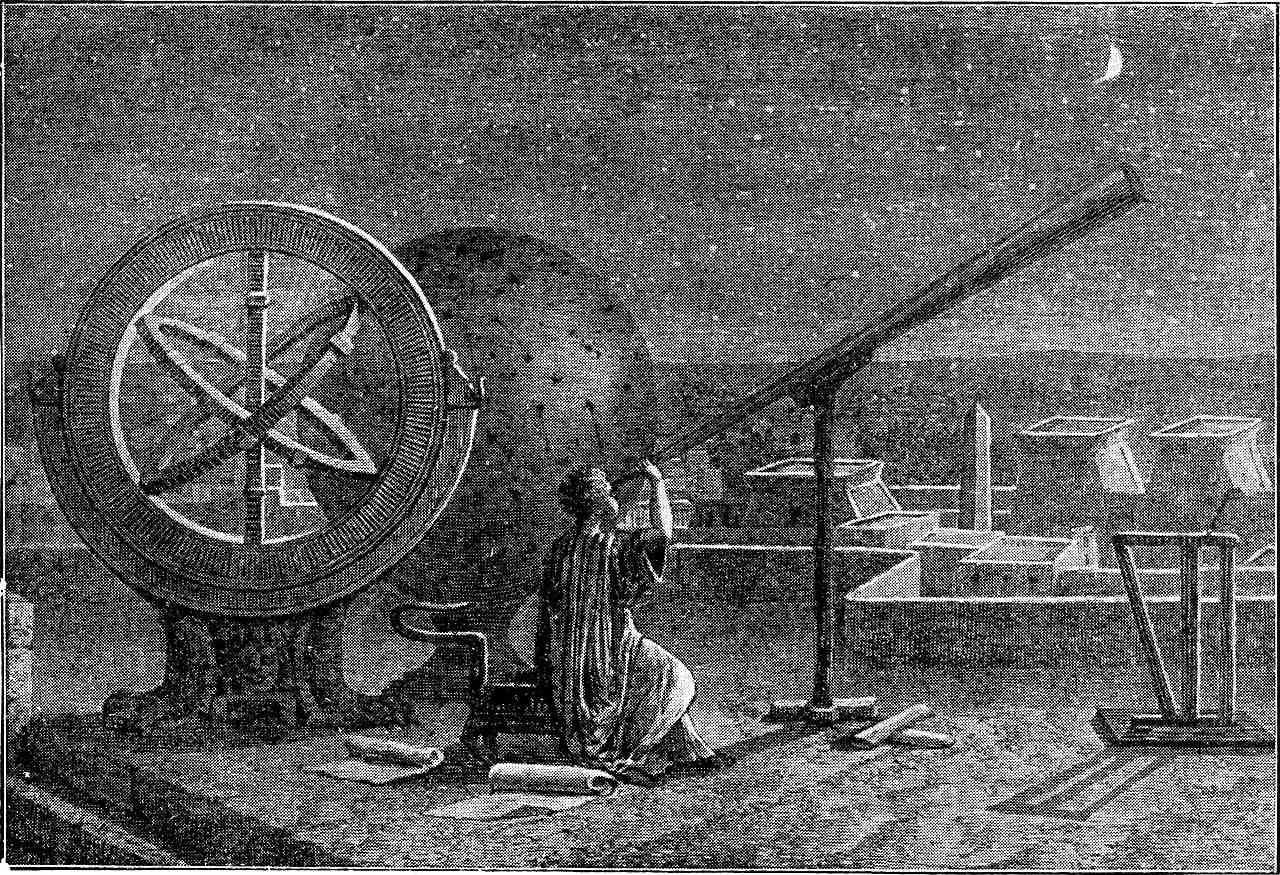Ancient Greece is one of the most celebrated cultures in history and it is not hard to see why. What they gave to the world is incredible, as mankind would be a completely different species without the things they created. Ancient Greek Technology changed how the world worked then and it was only added to as time went on. Many feel the Ancient Greek world pretty much ended with the death of Alexander the Great. Yet this is not exactly true, as Greek factions across the ancient world came about after his death. Greek General Ptolemy I Soter began the major Ptolemaic Dynasty during this point.
However, very few Ptolemaic Royals actually lived in Egypt or knew the language. Cleopatra was one of the only ones who did and she was the last in the Ptolemaic line before the Greco-Roman period. This is often why we seem to connect Rome, Greece, and Egypt in history. However, the cultures were different. In spite of this, there is still a connection between them all like a thread that connects fabric. Greece was among the first ancient cultures where we were gifted with a massive rise in some important concepts. Most of our technology and concepts today live on their discoveries.
They invented Mathematics, giving us the original rise to Geometry, Algebra, Calculus, and much more. Meanwhile, they also gave rise to major science like Biology & Anatomy. If that was not enough, they also gave us the first known point of Democracy and even The Theatre! All of this helped spark more massive inventions, discoveries, and concepts. A lot of what we use today comes from Ancient Greek Technology too. Don’t believe us? Then sit back and enjoy this article regarding the best of the bunch.

40. Urban Planning
- Time of Invention: 3,000 to 2,001 B.C.
Urban Planning is known as a technical and political process revolving around the development and design of land use. It also has to do with the overall infrastructure of an area, including how water, air, transportation, and communication will happen. Essentially, it is pretty important. While the Romans seemed to perfect this, the people originally responsible for it were the Ancient Greeks.

This mostly comes down to Mesopotamia who first realized how to do this. While not the first official city in human history, they were among the first vast cities. They also gave rise to one of the first dynastic kingdoms. Since the area became the major hub that would one day be Greek in the 3rd century B.C., this is also the time in which it is believed urban planning first was implemented.

39. The Alarm Clock
- Time of Invention: 428 B.C.
No need for batteries or electricity, the Greeks found a way to make an alarm clock without it. Greek Philosopher Plato was among the most notable to have one. He had a water clock that acted as an alarm system, which set off a signal to the sound of a water organ.

Many believe that he used this to signal the start of his many lectures each day. It is said that the system was perfected when Ancient Greek & Egyptian Engineer Ctesibius made his version. His machine made pebbles drop down to create a gong or blow trumpets by using compressed air or water. They’d go off at different pre-set times during a given day, creating the version we know today.

38. Catapult
- Time of Invention: 100 to 1 B.C.
While some assume China made the first catapult, it was actually invented by the Ancient Greeks. The Greeks invented one that sent arrows off dating back to the late 3rd Century B.C. period but things eventually stepped a notch when catapults began sending heavy objects over.
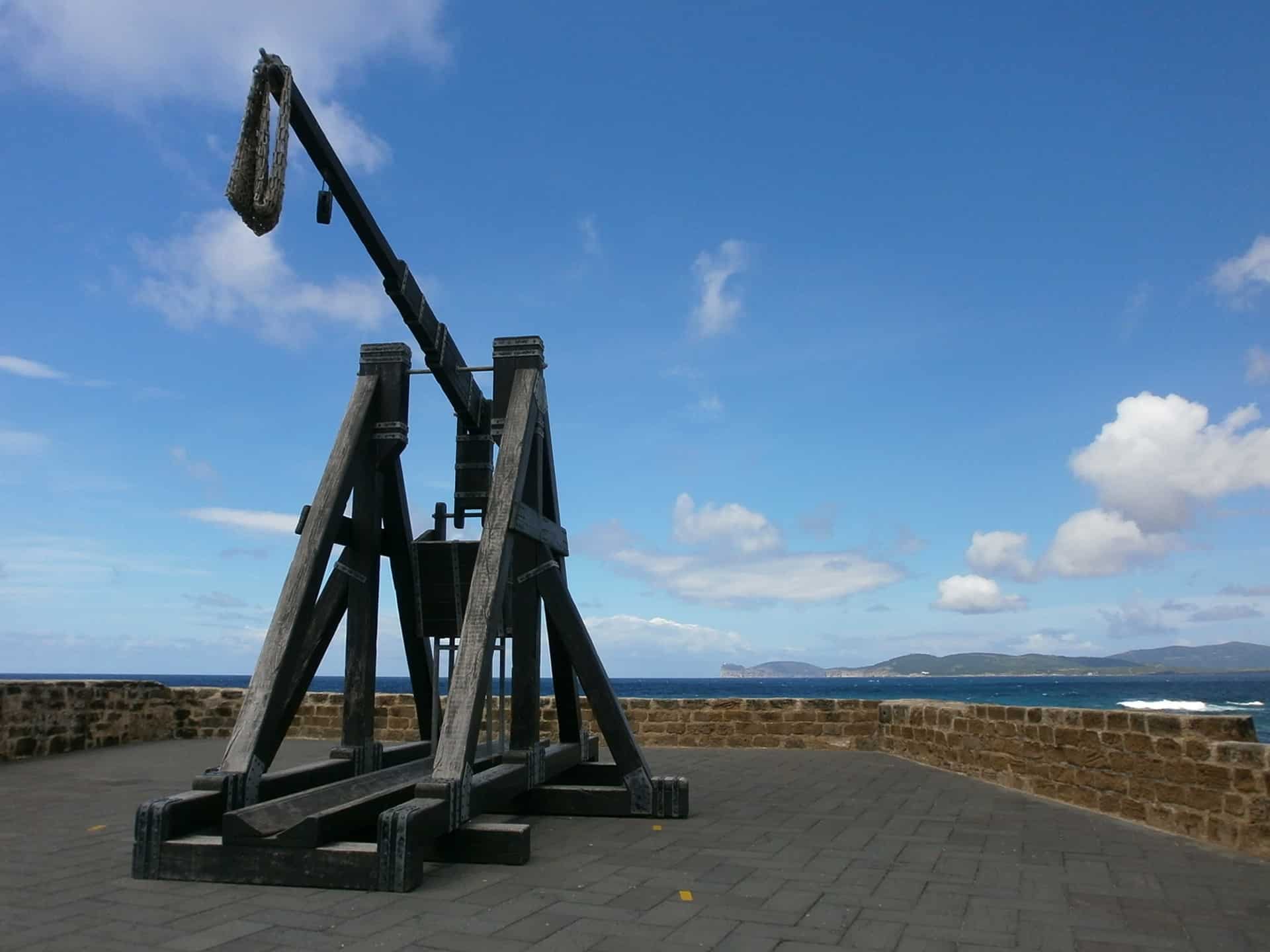
The idea was that the catapult could send something like a boulder over to break through something like a wall or group of soldiers. It became such a useful tool in wars that it remained in use for hundreds of years. Even when cannons were introduced, the catapult still remained in use too.
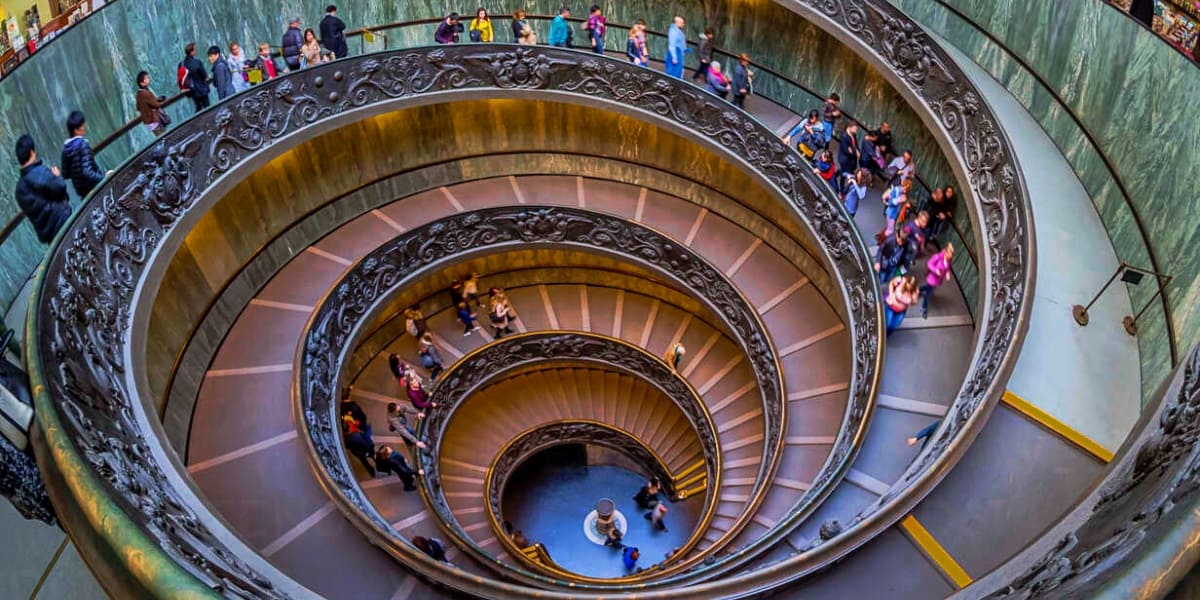
37. Spiral Staircases
- Time of Invention: 480 B.C.
Stairs had been around for thousands of years before they went spiral. However, the spiral version was quite new and unique to see. This is why they were typically seen in temples all across Greece. Many unique and new choices in architecture seemed to begin with temples in Greece.

That is exactly where the first spiral staircase ended up. It was located in Temple A in the Ancient Greek City of Selinunte, located in modern-day Italy. This ancient Greek technology took off across the rest of the Greek world, becoming a staple in other sectors for the next thousand years.

36. Central Heating
- Time of Invention: 2,500 to 1,500 B.C.
To generate heat, the Greeks realized all they had to do was make a system that could create heat from furnaces. Then they had to find a way to implement it indoors. The Temple of Ephesus was the first place to do this. It was heated by flues planted in the ground, which managed to circulate heat all around.

Warm air could be created by a mere fire room or furnace. All one had to do is find a way for it to enter a particular room, which was easily done using pipes or empty spaces under the floors. Once the Roman Empire collapsed, things became primitive once again as normal fireplaces were used to generate heat in rooms for the next thousand years.

35. Showers
- Time of Invention: 600 to 501 B.C.
Obviously, the original shower was rain or waterfalls but we’re discussing the indoor versions here. Ancient Greek technology of the time allowed them to shift water already. Thus, it made sense to use their aqueducts and sewage systems that allowed water to flow as it was pumped in. This was often used in private for the royals of the day.

Eventually, larger communal showers were brought into play, such as the notable version in the Greek City of Pergamum. In an interesting note, these shower areas looked a lot like modern-day locker rooms at your local gym. They had sections for people to put their stuff and even bars where people could hang clothing.
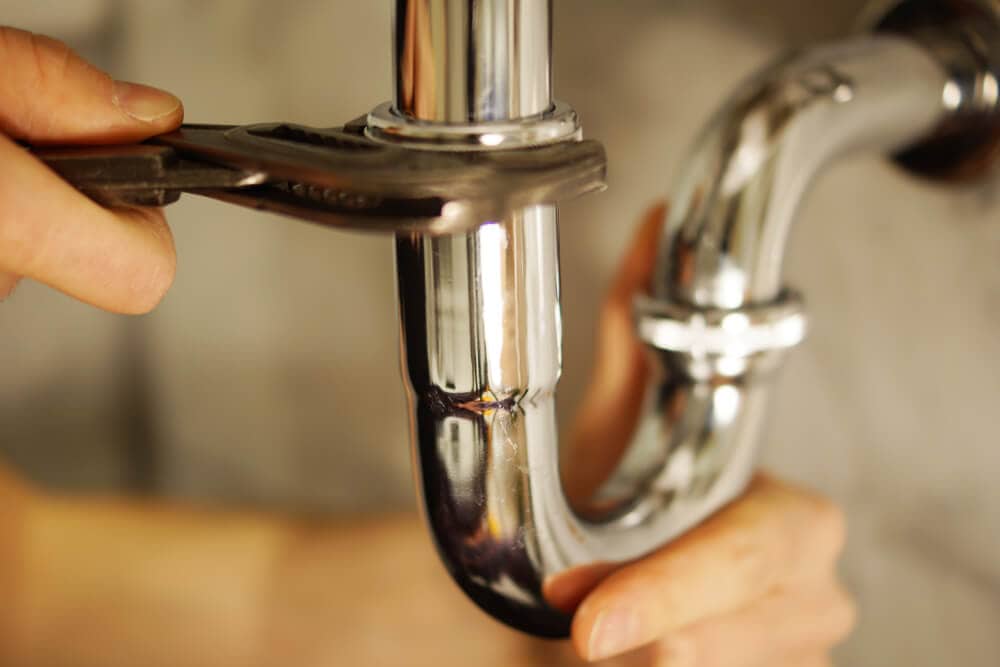
34. Plumbing
- Time of Invention: 600 to 501 B.C.
With all this new water stuff, naturally, a need for plumbing was going to come about eventually. While major plumbing that we know today would not come for hundreds to thousands of years later, ancient Greek technology in this area was pretty good.
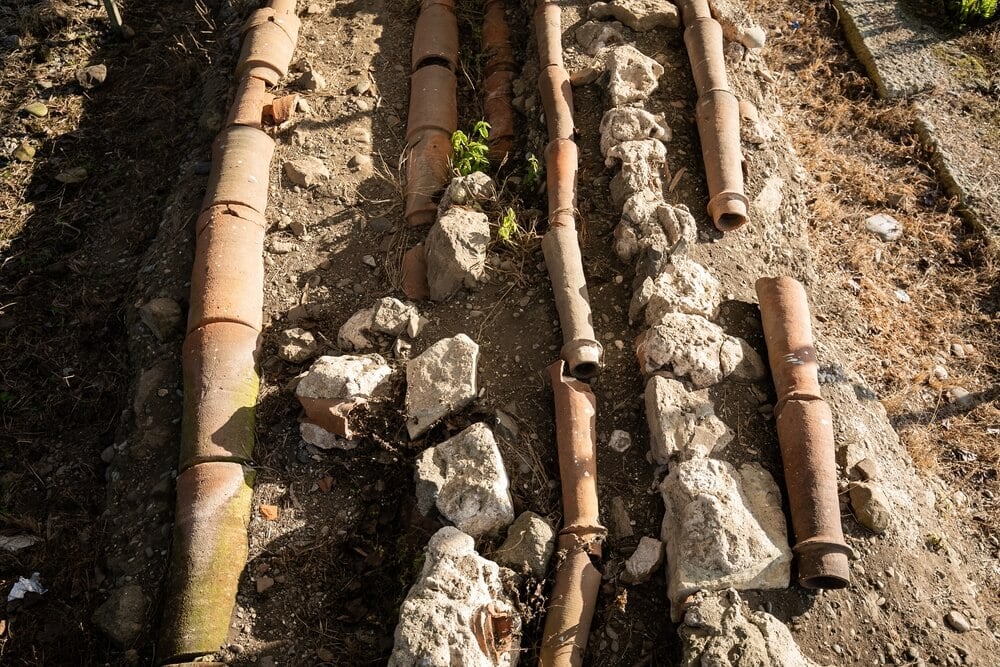
They used their tech knowledge of the time to make a system in which they could take dirty or used water out and into another direction away from the community. Meanwhile, they also made pumped systems that allowed for new water could come into play. The Romans truly expanded plumbing massively afterwards, making the first sustainable waste removal system, among other things.

33. Hygiene
- Time of Invention: 1,200 to 500 B.C.
There is a lot to Hygiene overall. Some hygiene concepts surround things like food, where to use the restroom, and much more. A lot of this came from the medical world, as the people in this sector did experiments to confirm things. Some of the most prominent early Greek doctors came up with a lot of concepts we still use today.

They did not use soap but instead employed things like oils and ash. Of course, we now know that ash from fires works a lot like soap and is a fine substitute for it too. They were even the first to use things like a brush to scrape off dirt, oil, etc. Combined with the showers & baths, they were among the first to expand hygiene.

32. Levers
- Time of Invention: 6,000 to 5,000 B.C.
Levers date back to the earliest civilizations. It is said that the original lever was used to make a simple balance scale. Many have difficulty narrowing down what culture truly invented the lever, however.
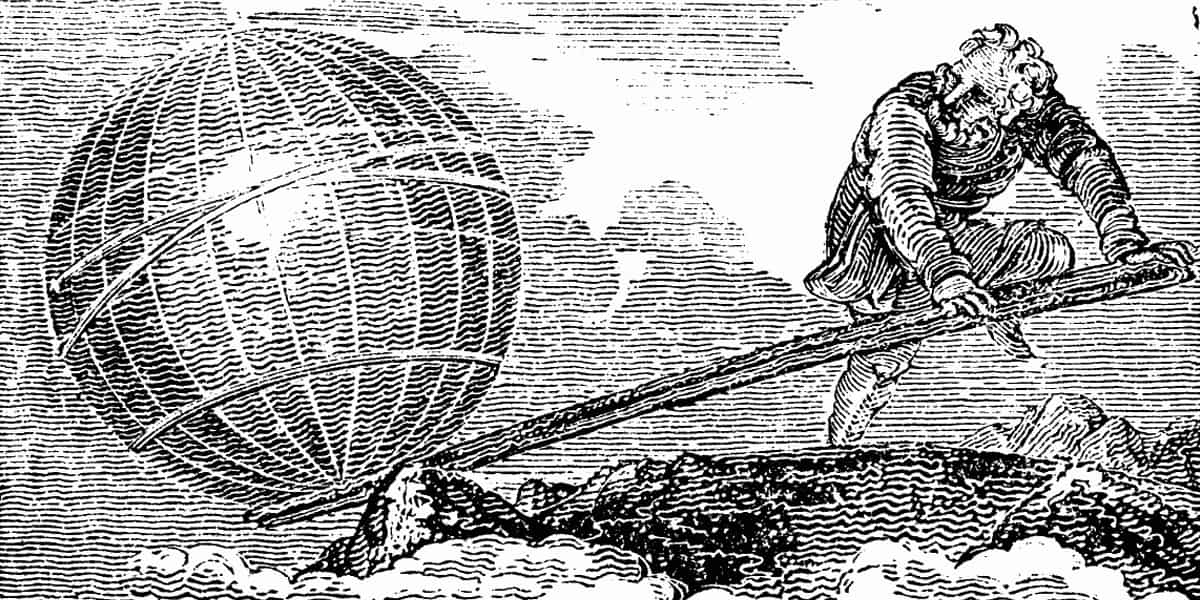
Despite this, it was the Greeks and Egyptians that made the most use of the lever. Egyptians used them to help with devices in their major builds but Greece did this many years prior to them. This is why many if they must give a certain culture the lever invention, we’ll give it to Greece over others.

31. Winch
- Time of Invention: 799 to 501 B.C.
“The Father of History,” Herodotus of Halicarnassus, gives us the first known record of the winch. He spoke of its use during the Persian Wars of the time. The winch Herodotus referred to was wooden and used to tighten cables for the pontoon bridge that was laid out over Hellespont in 480 B.C.
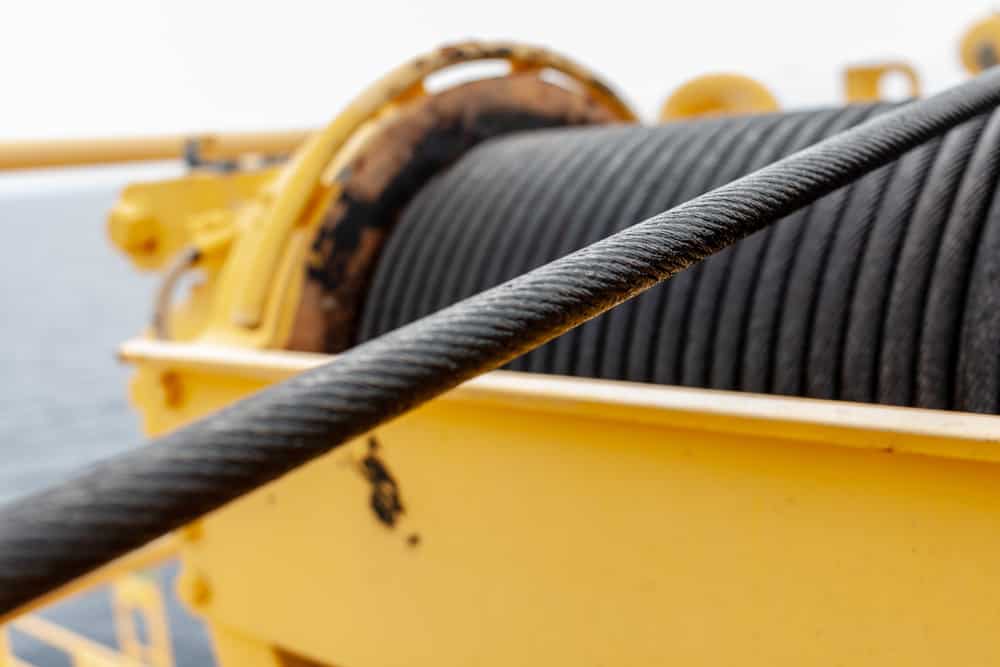
It is quite likely that they go back as far as the 7th to 6th century B.C. due to things that may have employed them. They were also added to by the Greeks, as many versions of them came from the world of ancient Greek technology. This includes those used in castles, on boats, and many more. Therefore, the winch is regarded as a Greek invention these days.
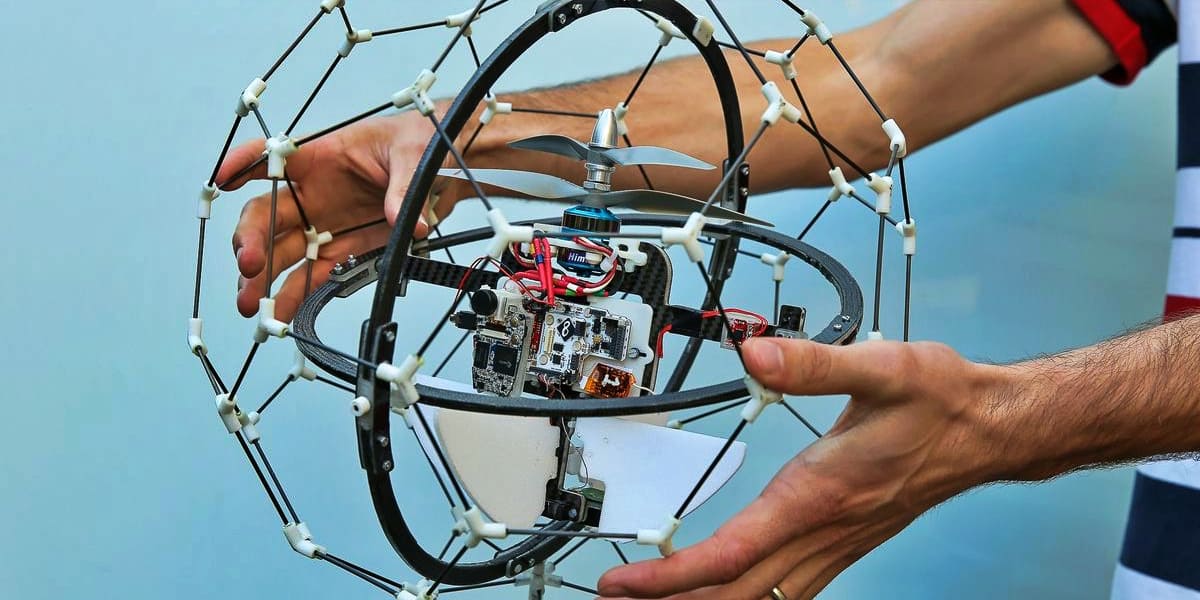
30. Gimbal
- Time of Invention: 400 to 301 B.C.
Many historians believe that it is nearly impossible to know when the gimbal was invented or who invented it. However, it was first described by an Ancient Greek Inventor named Philo of Byzantium in the 3rd Century B.C. Of course, a gimbal is something that uses a pivot support system, allowing the rotation of an object on a single axis.
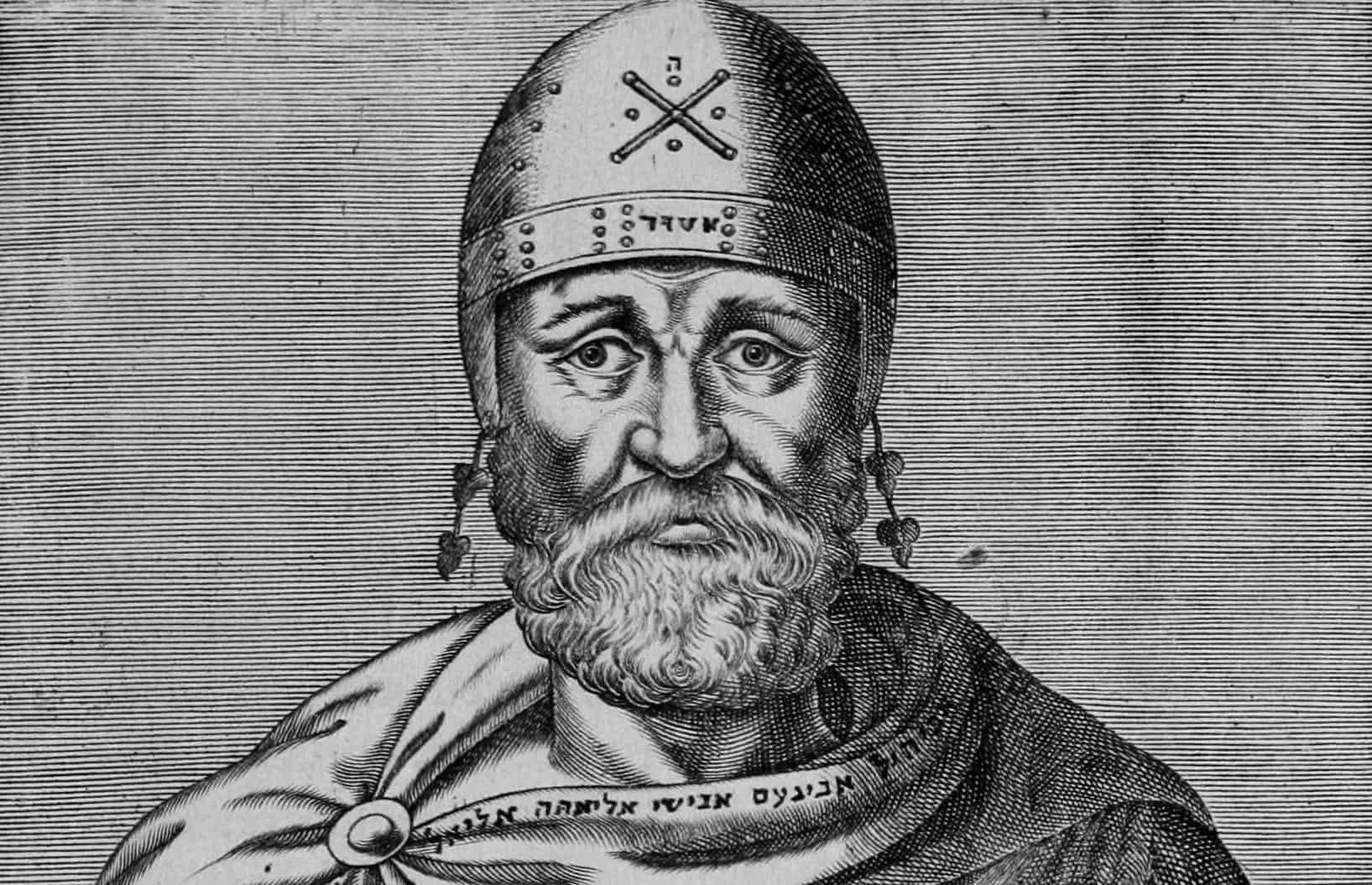
Several things employ gimbal technology from shipboard compasses to things like a stove and drink holder. They are mostly used today to maintain the support of an object. Cameras use gimbal systems to keep shaking or movements from affecting their shot, for example. It is still tough to know “who” invented it, as many added to it over the years to give us what we see today. However, the most notable use and the people who added to it have made several believe it is a Greek invention.
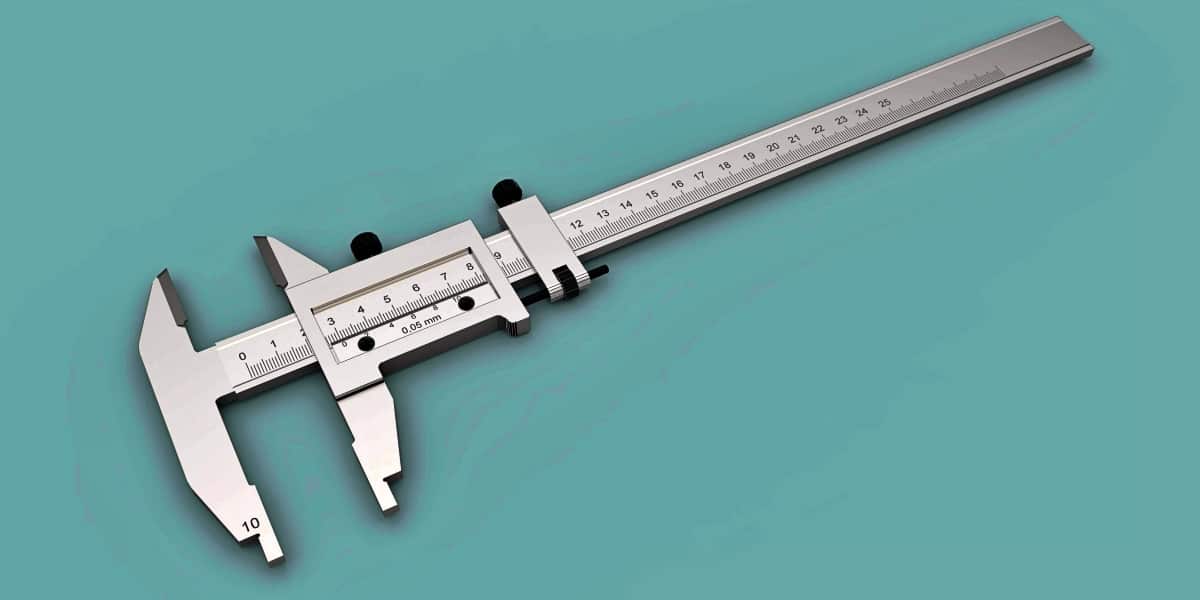
29. Calipers
- Time of Invention: 900 to 700 B.C.
The first known archeological evidence of calipers being in use dates back to a ship that was found in an Isola del Giglio shipwreck. It is said to have been wrecked in the 6th Century. This means the calipers must be older than that or they would not have been in use here. This is why many believe it likely is old enough to date back to the 8th Century or longer.
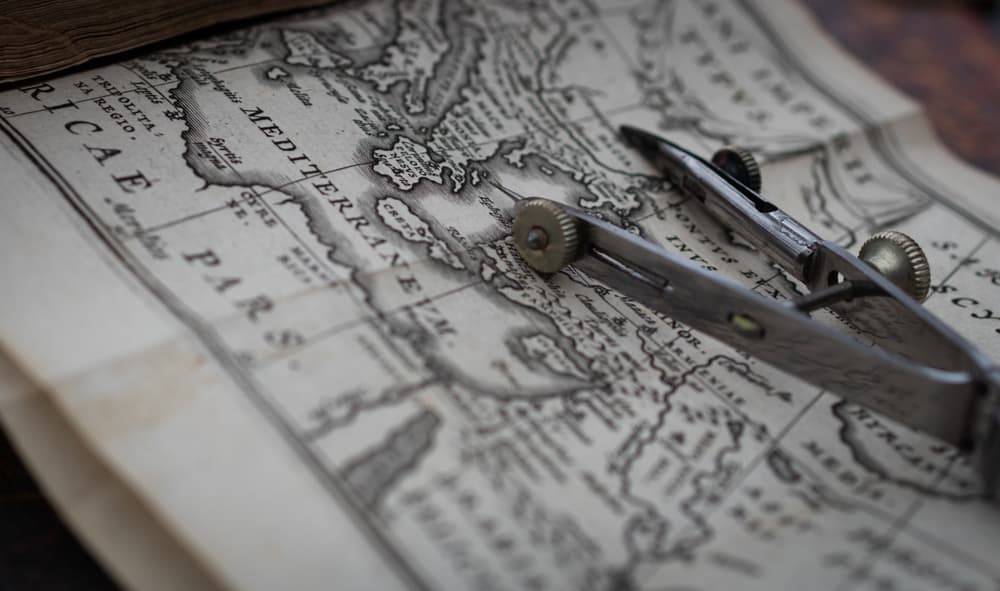
Of course, calipers have evolved a lot since then. However, they have seemingly always been used to help with measurement, such as the distance between two opposite sides of an object. Even though they have evolved, they still are used mostly for what they were invented for.
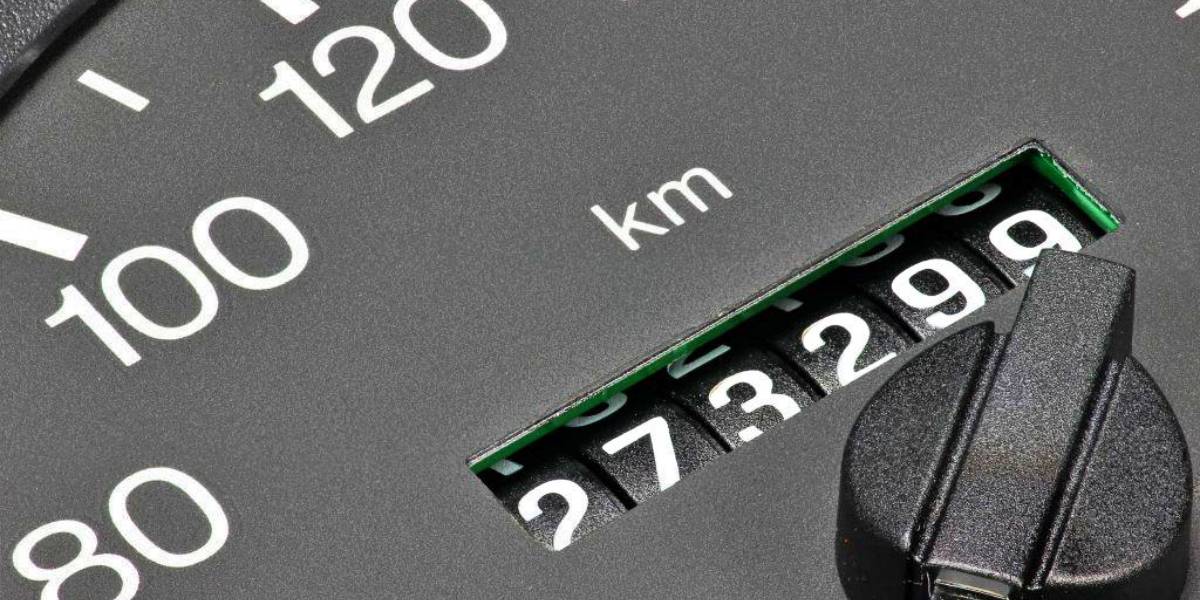
28. Odometer
- Time of Invention: 264 to 241 B.C.
Today, we know the odometer as that thing in our vehicle that counts the miles we have gone. Bicycles may also have them too. Yet they were not the first things to have such a thing. The odometer has several ties to Greece & Rome. Both Pliny of Rome and Strabo of Greece mention the distances of routes traveled by infamous Macedonian Greek King, Alexander the Great.
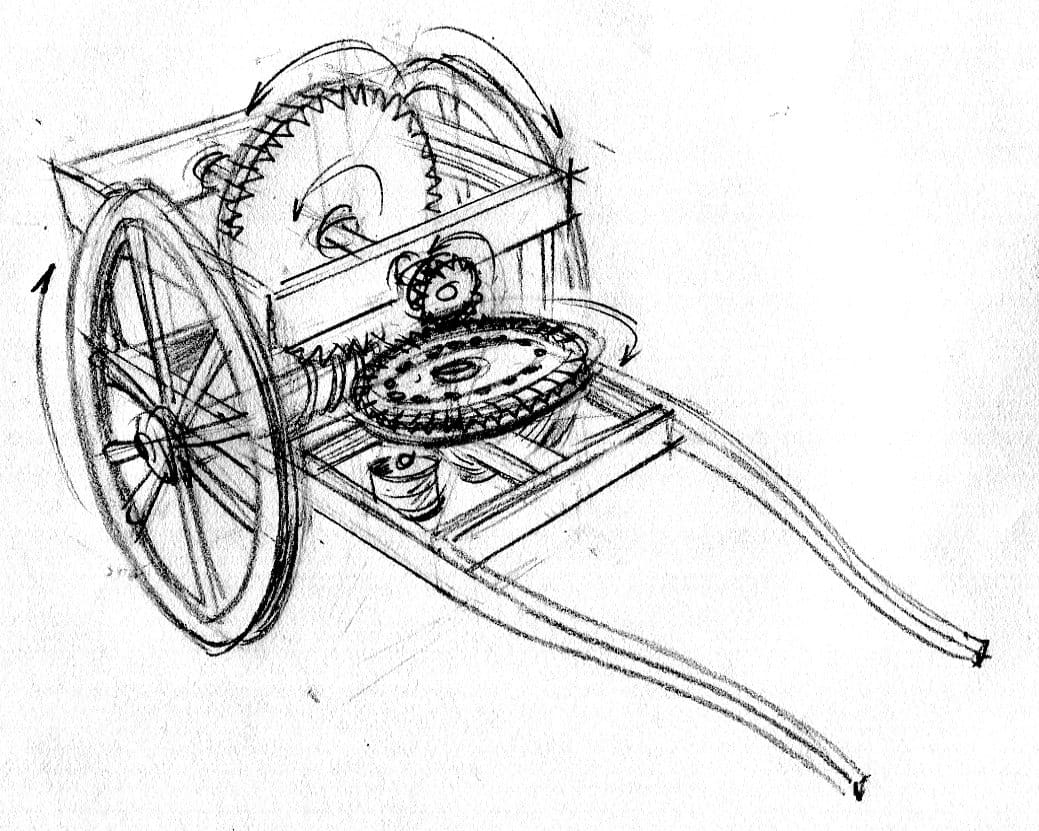
Someone likely used an odometer of some type to follow the routes that Alex traveled in order to get proper distances. Then those same people wrote them down for Pliny & Strabo to read. Many believe the famous Greek inventor and mathematician Archimedes of Syracuse invented it during the First Punic War (264-241 B.C.). Thus, it stands out as ancient Greek technology.

27. Wind Vane
- Time of Invention: 200 to 101 B.C.
This particular entry is slightly controversial, mostly because the timing of things will be different depending on who you ask. Some believe that the wind vane was invented by the Chinese because the first record of a wind vane textually comes from the Huainanzi text. This dates back to 139 B.C. so it can be easy to believe that they invented it.

However, the Greeks had wind vanes at The Tower of the Winds in Athens. This is a noted meteorologic station within an impressive Athenian forum. It contained a vane made in the form of the Greek God Triton notably on the roof of a prominent building. It worked exactly as wind vanes do today. The overall forum was up by 50 B.C. but it is said that this area of the forum was in place by the 2nd century B.C. That means they very well could have invented it at the same time.
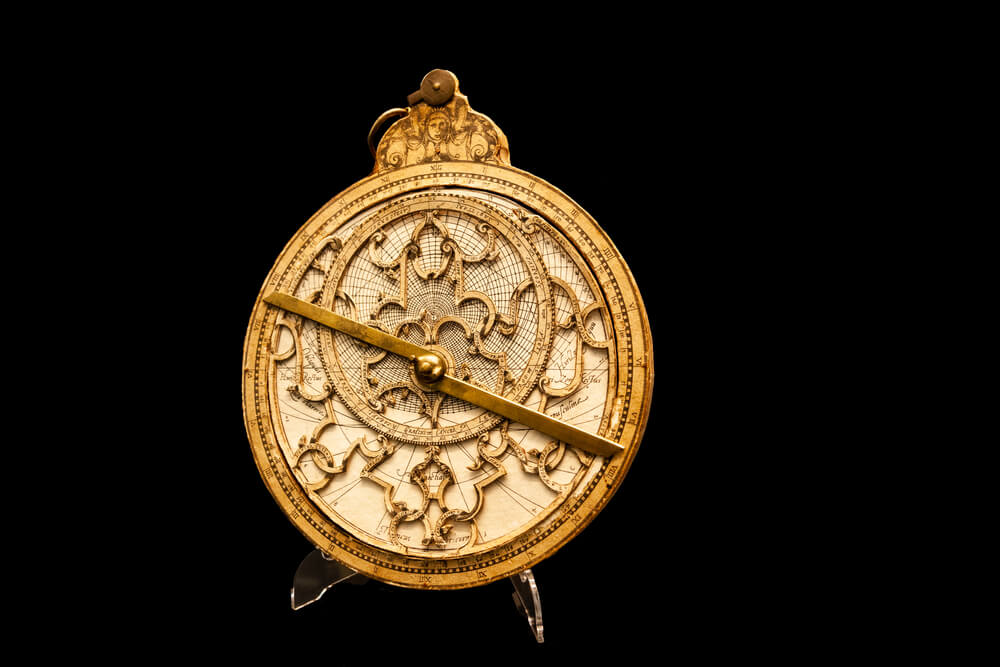
26. Astrolabe
- Time of Invention: 220 to 150 B.C.
The Greeks were, like other ancient cultures, were obsessed with astrology and astronomy. They felt knowing about how the stars and universe operated could help with health and success. The Astrolabe was invented to help interpret the positions of the stars and helped them solve various problems in astronomy.
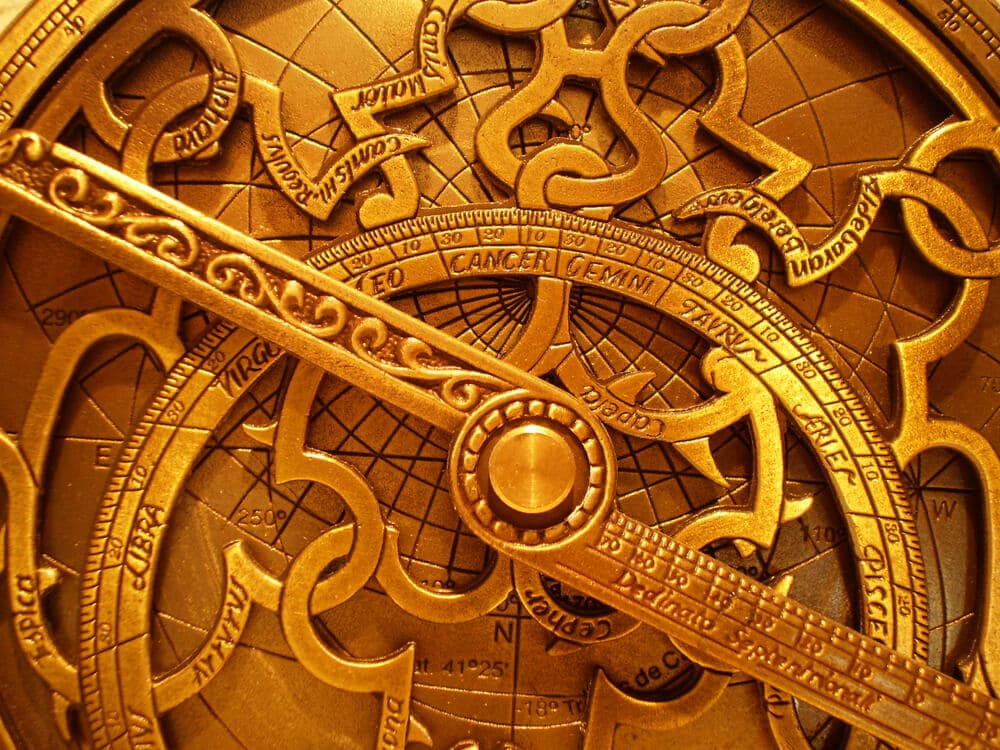
A man by the name of Apollonius of Perga is said to have been the person who invented it. His concept was to try and marry the planisphere and dioptra, bringing essentially an analog calculator capable of helping with the aforementioned calculations. It worked very well, and this ancient Greek technology gave rise to other machines later on, such as the first clocks.
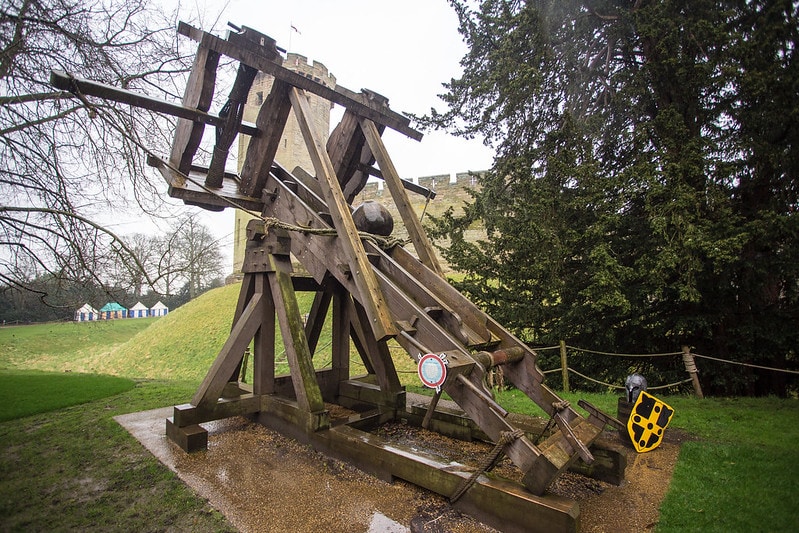
25. Cannon
- Time of Invention: 500 to 400 B.C.
To be fair to those who say that the Greeks did not invent the modern cannon, they technically did not. The cannon as we know it today was invented by the Ancient Chinese. However, there is some ancient Greek technology that can be related directly to it. In fact, the word cannon is even from the old Greek word “kanna,” which means reed.

The Greeks did invent the Ballista, however. This was a machine that often launches stones or large bolts in a particular area. The bolts were sent over by using torsion springs. This essentially added tension, similar to that of a bow when it shoots an arrow. This concept was used for the cannon. However, it used gunpowder rather than tension or springs, to shoot objects.

24. Maps
- Time of Invention: 600 to 501 B.C.
Early maps often used images to give people visual aides. This helped people navigate various areas. Maps obviously grew as time went on to be more than this. Not only could they help with navigating small sections, but they eventually grew to include maps of entire cities. Eventually, they became massively important to long-distance navigation.
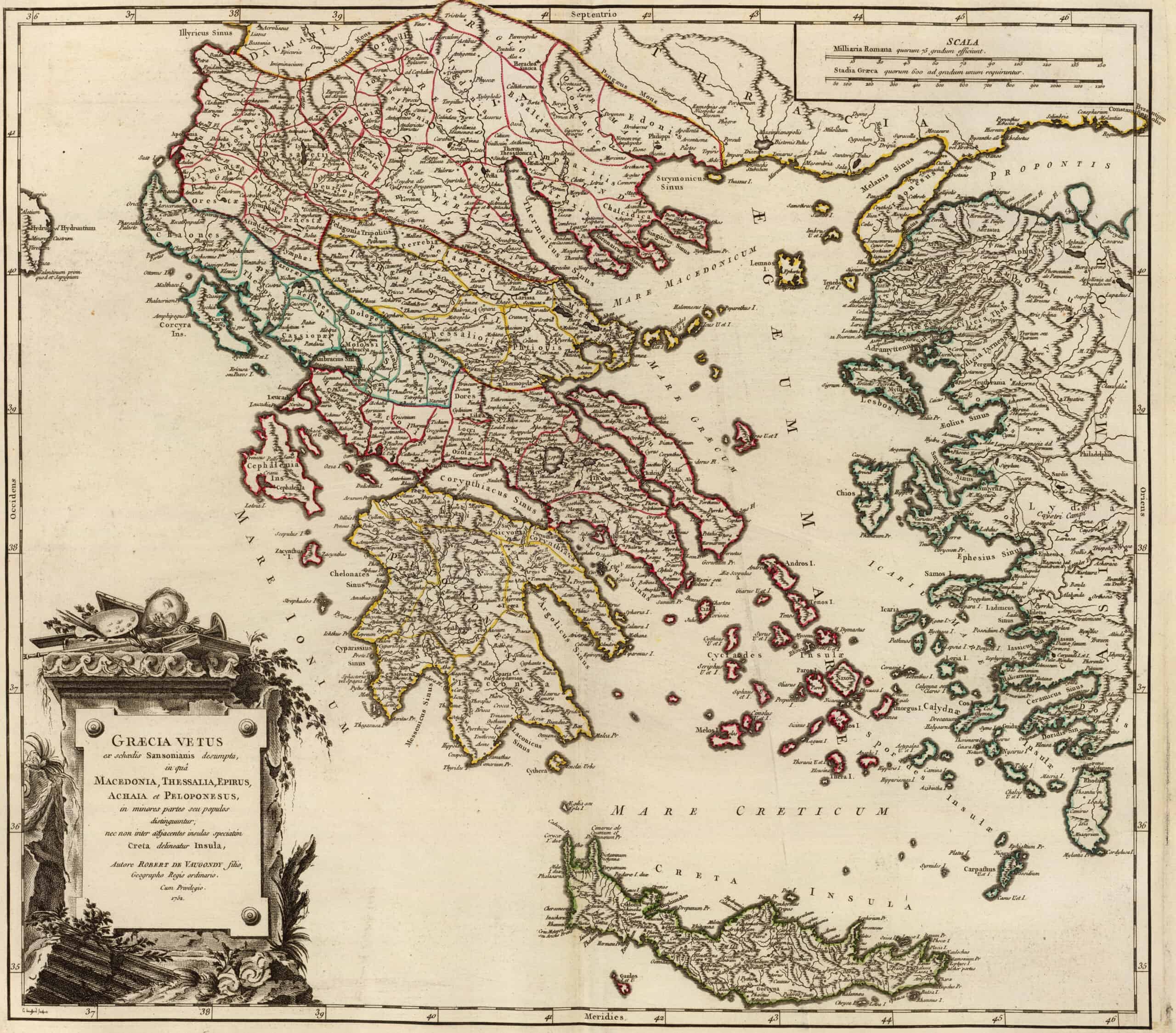
While it may not come across technically as a technology, the importance of maps has made them drastically important to overall navigation. We tend to use tech in navigation today quite often, such as a compass for most human navigational history or even GPS satellites today.

23. Internal Medicine
- Time of Invention: 440 to 420 B.C.
This may not be technology, but it is a concept we still use today. When internal medicine began in ancient Greece, it was mostly revolving around different things one could do for their body. They were the first ones to realize that staying in shape and eating healthy are both important to a person’s overall health.

Once they did this, they began making instruments or medical tools to help them. This involved various now primitive tools and some that we still use. Things such as hooks, specially made for certain procedures as well as the original scalpal were Greek inventions. It is true that Egyptians began using tools more frequently before the Greeks. However, internal medicine similar to what we see today began truly with Greek Physician Hippocrates of Kos.

22. Sails
- Time of Invention: 6,000 to 4,500 B.C.
While it does appear that Egyptians and others used reed boats for many centuries, it was actually the Greeks who invented the sailing part. Evidence that dates back thousands of years ago shows ceramics from the Cucuteni-Trypillian culture with the use of sailboats. These are roughly from the 6th Millennium B.C.

That pre-dates major Egyptian boats or sails. The earliest direct evidence of ships that we can find goes back to Mesopotamia during the Ubaid Period. This actually evens up well with the ceramic material. Since early Greece revolved around Mesopotamia, this means sails first started here, making them ancient Greek technology.

21. Modern Skewers
- Time of Invention: 2,000 to 1,500 B.C.
Naturally, a lot of “firsts” happened during the time of Ancient Greece. We all know that the Greeks were inventive people, but some of the stuff we take for granted today was massive for them. Enter the average skewer.

Often overlooked due to seeing it so often, the Greeks invented a way of handling food that made life so much easier on us all. They merely grabbed a stick and put meat and veggies on it. They used to hold these skewers on stone supports, likely as a way to cook what was on them over a fire. It may not come off as major ancient Greek technology, but it is technology nonetheless.

20. Fire Hose
- Time of Invention: 100 B.C. to 1 A.D.
The Fire Hose is notably an ancient Greek invention, likely due to the fires that broke out in Alexandria among other Greek cities. They needed a way to push water through quickly, in an effort to put out the blaze. Notable Greek inventor Hero is said to have invented it or at least made a better version of an existing version.
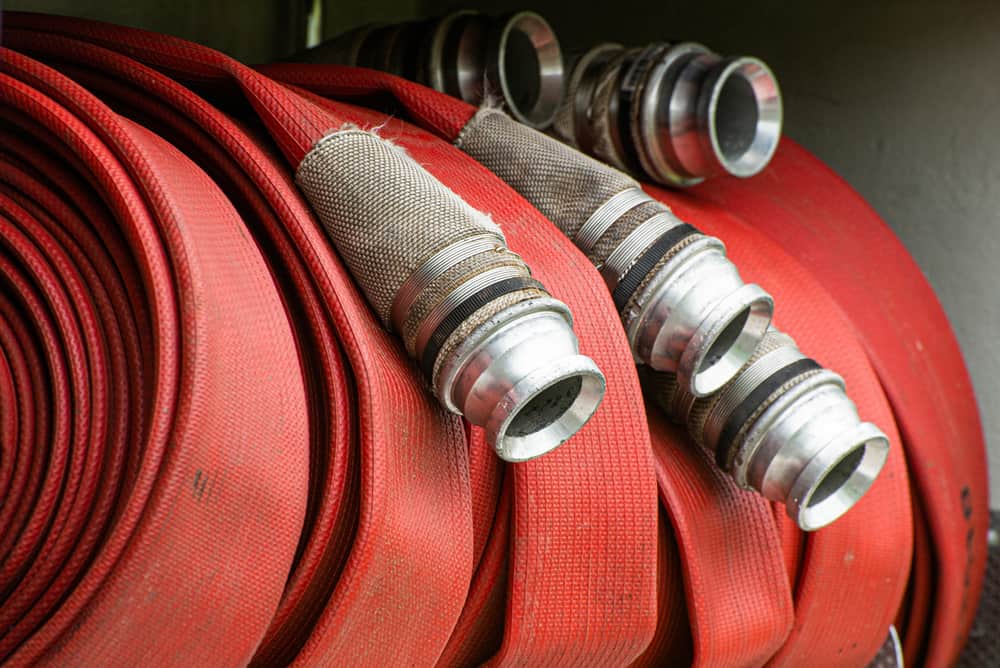
It seems that Hero is a complicated person to pinpoint when it comes to his culture. Due to the Greek and Egyptian worlds connecting, it is uncertain if he was Egyptian or Greek in some way. We do know he taught at the Library of Alexandria, however. This could be why we still call the fire hose a Greek invention. In fact, Greece was the first to employ set firefighters. They likely would have been the ones trying to put out the fire that burned down the aforementioned library.

19. The Water Mill
- Time of Invention: 500 to 200 B.C.
The Water Mill is among the first true sources of energy-powered machinery ever invented. Water Mills use hydro-power, which was a type of energy that became a massive use to early civilizations. It remained THE power source for thousands of years until things like electricity among others came to be. Of course, it’s not like the Greeks needed to charge their iPhone.

The earliest known case of Water Mills being used dates back to Mesopotamia. The Perachora wheel is said to be the first water-driven wheel invented, which was described by Greek Inventor Philo of Byzantium. Although we know Philo did not invent it, we’re unsure who did. We simply know the wheel was invented by a person from Greece, making it ancient Greek technology.
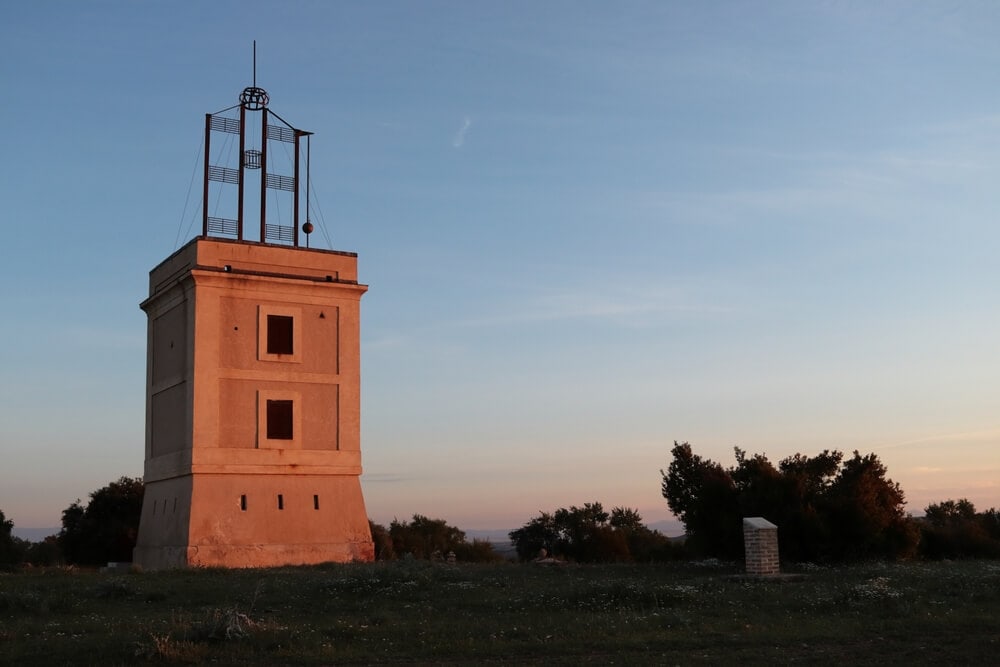
18. Optical Telegraph
- Time of Invention: 500 to 300 B.C.
The optical telegraph is pretty simple to explain. Stations are lined up within the eyesight of the next closest one. When needed, a signal would go off that each station could see. This was usually used as a warning sign of some sort. Due to a need to get this right, stations were typically at the top of towers. Usually, a smoke signal, fire signal, or hydraulic signal was the main visual aide.
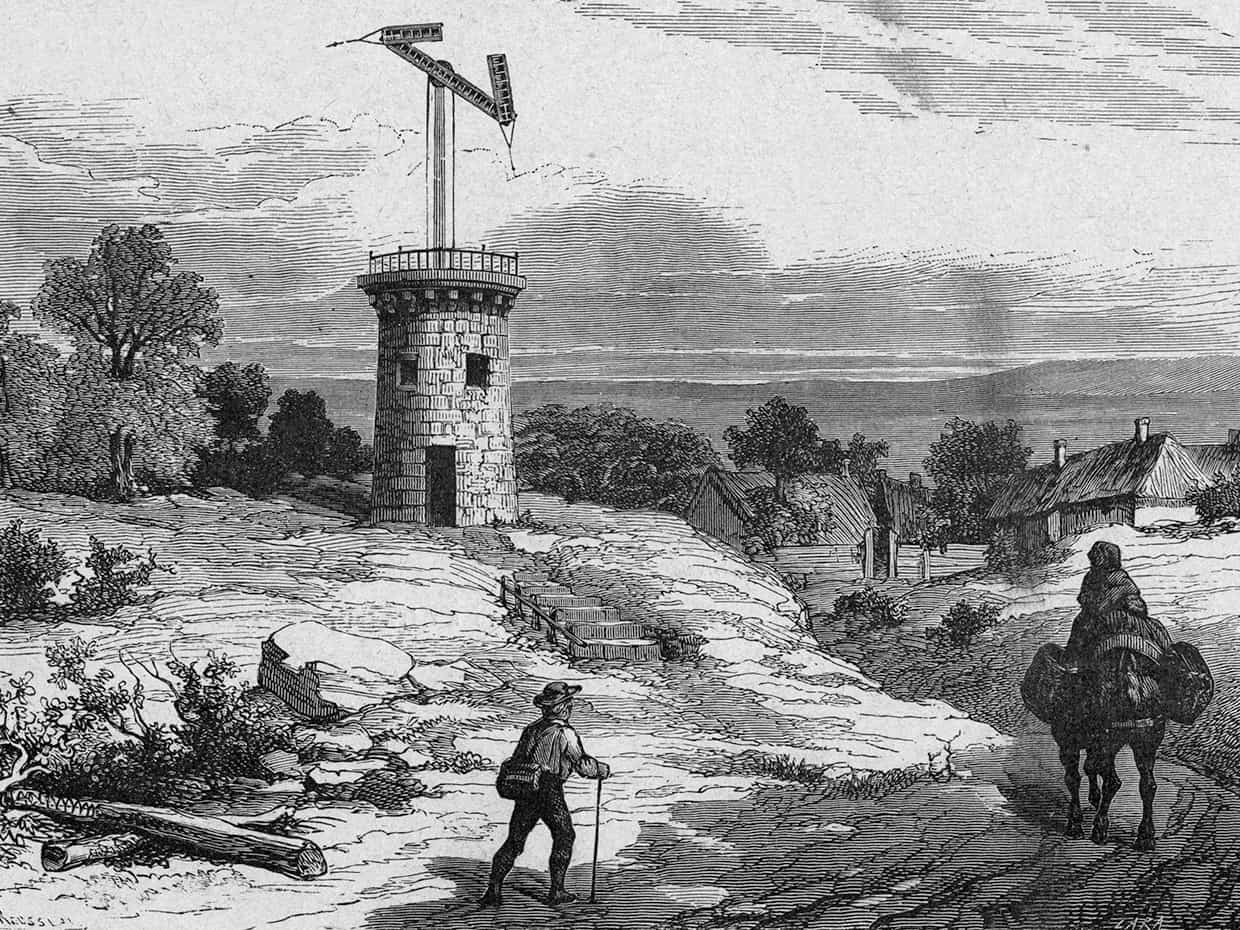
Everyone knew what each signal meant, which allowed people to know what to expect and even when. Most people credit France or China for the optical telegraph the most. While they did make far better and more sophisticated versions, the original telegraph was an ancient Greek invention. It takes back over 2,000 years.
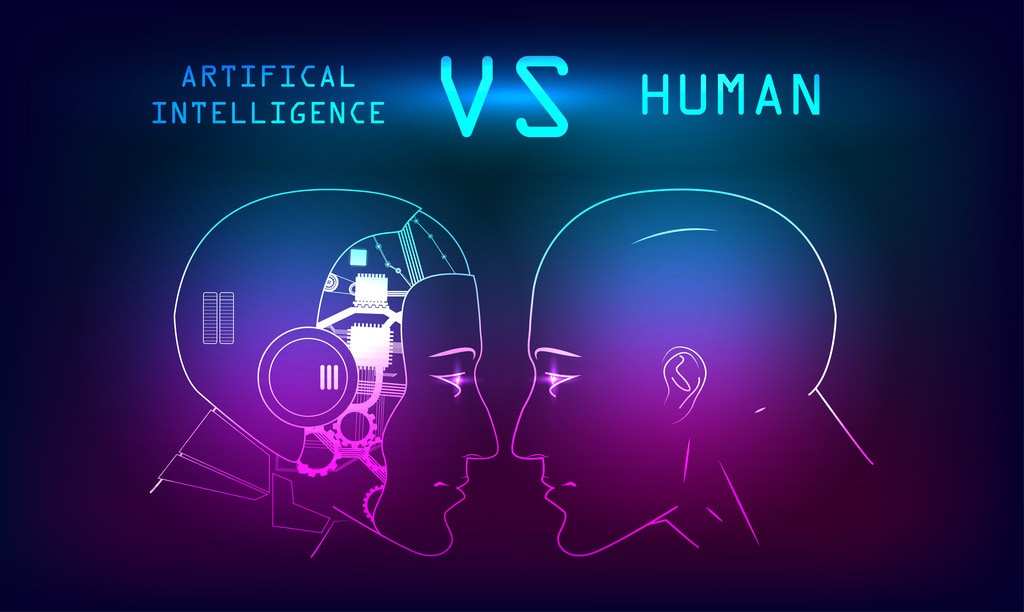
17. Robotics
- Time of Invention: 500 to 400 B.C.
It is uncertain when the first true robot was invented but the people most credited with the earliest form of robotics were Greeks & Egyptians. There are a few main inventors behind them, all are infamous for their Greek ties. They are Philo of Byzantium, Hero of Alexandria, and Ctesibius. Greek Inventor Archytas of Tarentum is also a major part of this, but more on him later.

Philo invented the automated washstand & wine pourer. Hero invented the first vending machine among other devices we’ll discuss further. He is considered “the father of cybernetics” due to all his inventive technology. Yet it was Ctesibius who was the true first to robotics. He invented the first organ, which worked on hydraulics and he even made a water clock with moving figures.
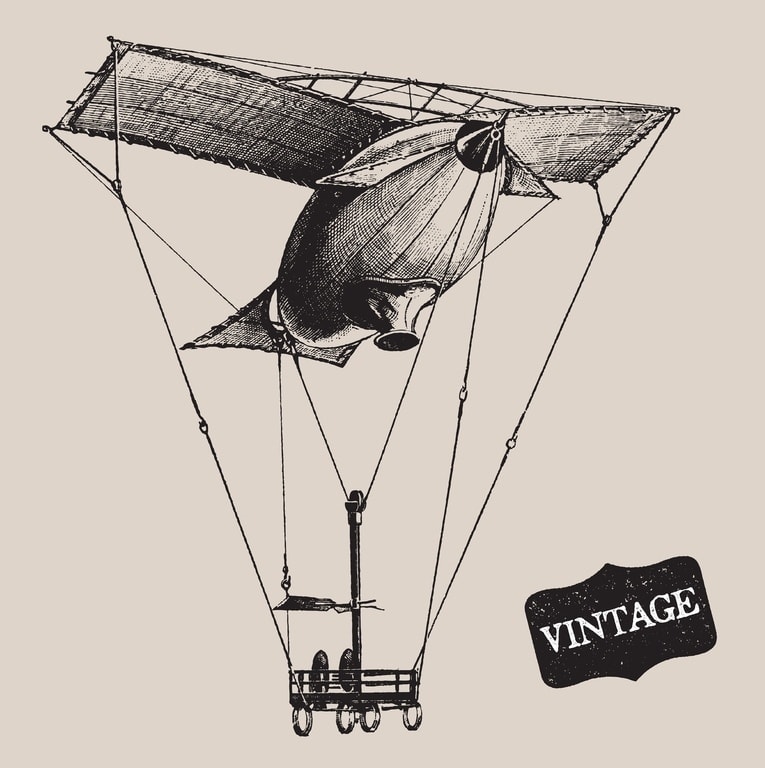
16. The Flying Machine
- Time of Invention: 350 B.C.
We slightly lied when we mentioned that people such as Philo & Ctesibius were the first to robotics. One other person beat them to it, but many credit him for something slightly different. Archytas of Tarentum invented the first-ever flying machine. The man was a major fixture in cosmology too (a crater on the moon is even named after him).
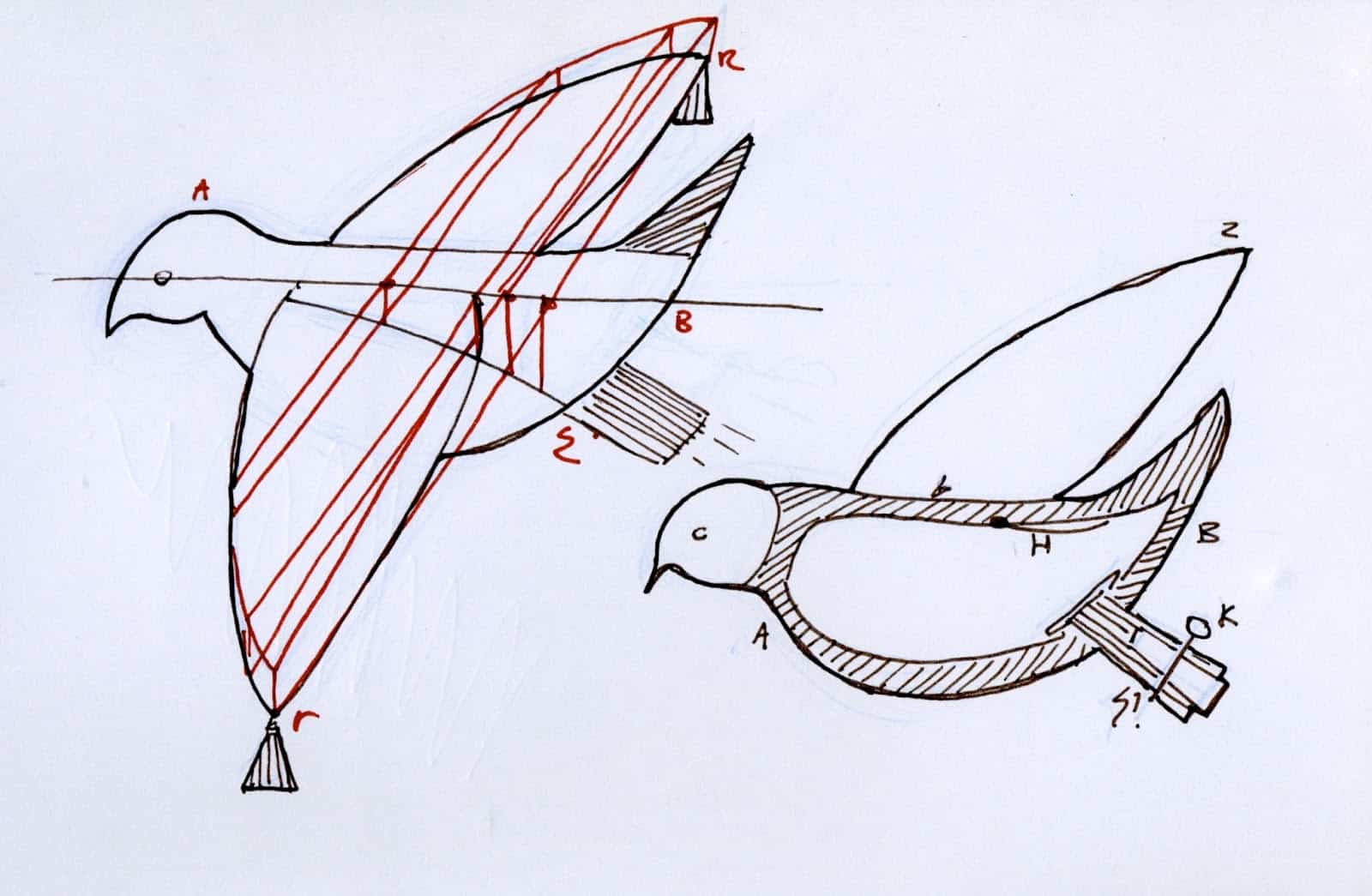
He taught at the Pythagorean School due to his mathematics prowess. He even invented mathematical mechanics. Yet Archytas wanted to make something fly. He did this with the now infamous Archytas Dove. It was a wooden dove that could flap its wings and fly up to 200 meters (656 feet). It somehow ran on compressed air or an internal steam engine.

15. Modern Surgery
- Time of Invention: 500 B.C. to 100 A.D.
It was the Ancient Greeks & Egyptians who first began surgical procedures that we know today. However, the Greeks managed to beat the Egyptians to it. While some procedures such as trepanning or some common dentistry had been in play for centuries, the average surgery was not. We get most of our early surgical content from Hippocrates & Galen, both Greek Physicians.
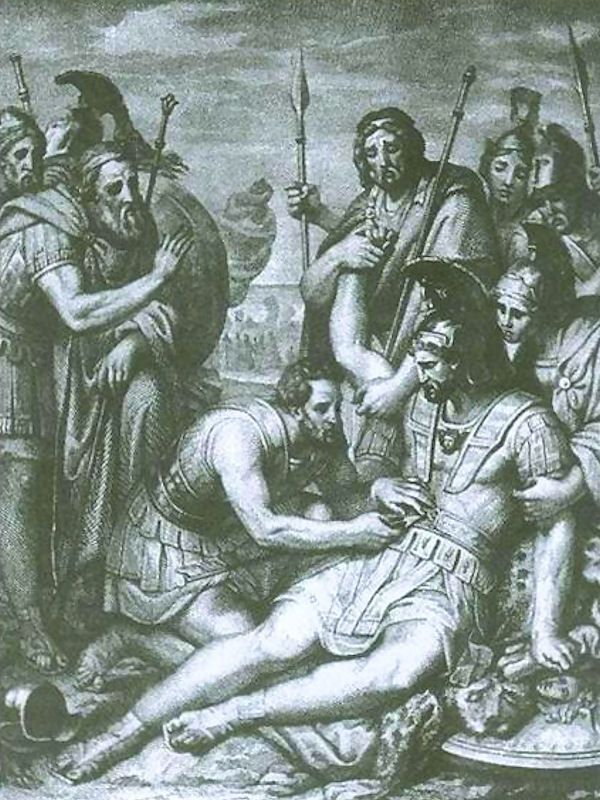
The place most surgeries took place was at the Asclepieion of Epidaurus. They removed abdominal abscesses and any foreign object stuck in a person. Galen alone actually performed brain and eye surgeries successfully, but no one else could seem to replicate his successes here. Surgeries in these two areas did not happen for another 2,000 years after his passing.
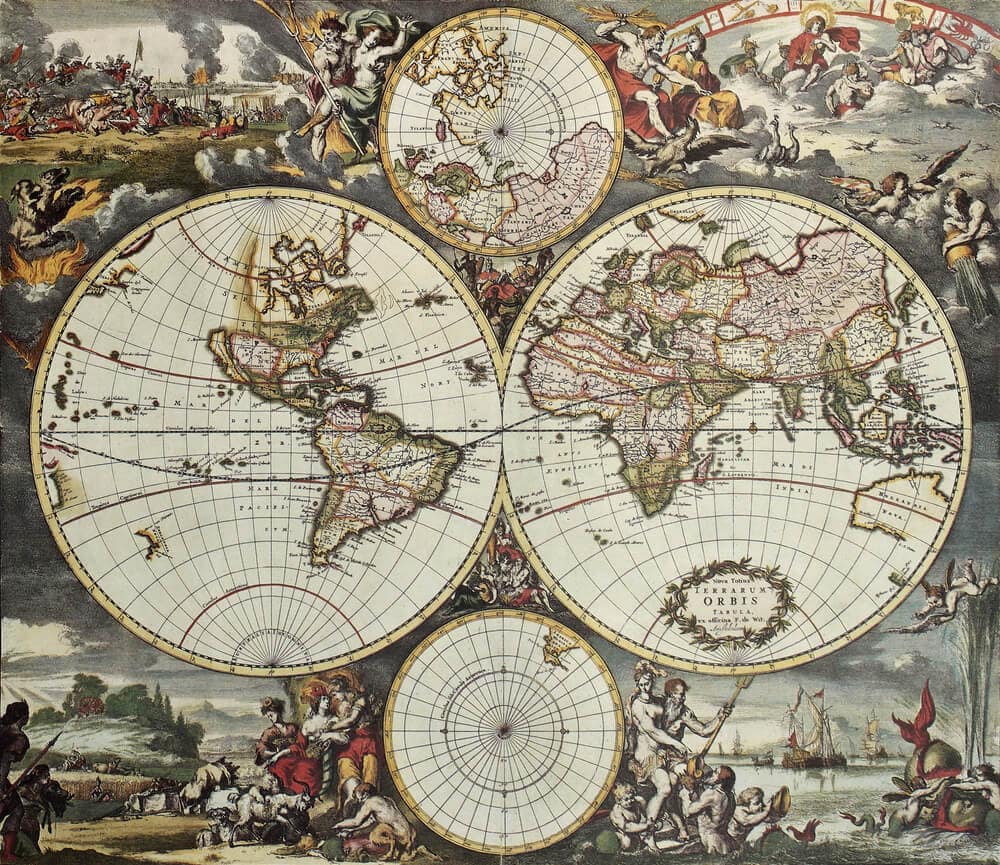
14. Cartography
- Time of Invention: 200 to 300 A.D.
Cartography, in a nutshell, is the study of maps. While mapmaking had been in play for centuries before the exact study or science behind them came into play, they improved drastically when this was implemented. The inventor of this science was known as Claudius Ptolemy.
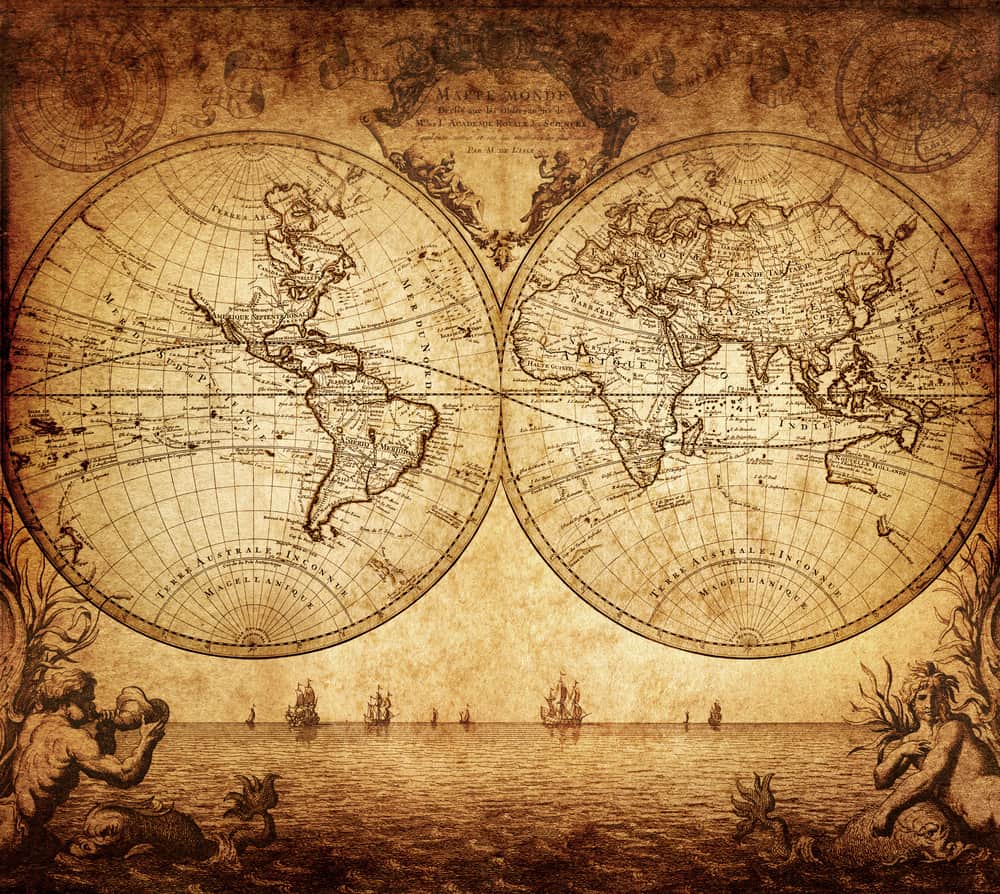
He invented a concept we still use today called Geographia or as we know it today, Geography. His concepts on maps helped to give us a proper way of seeing the world. At least, he helped this the best he could with the knowledge we had of the world in his time.
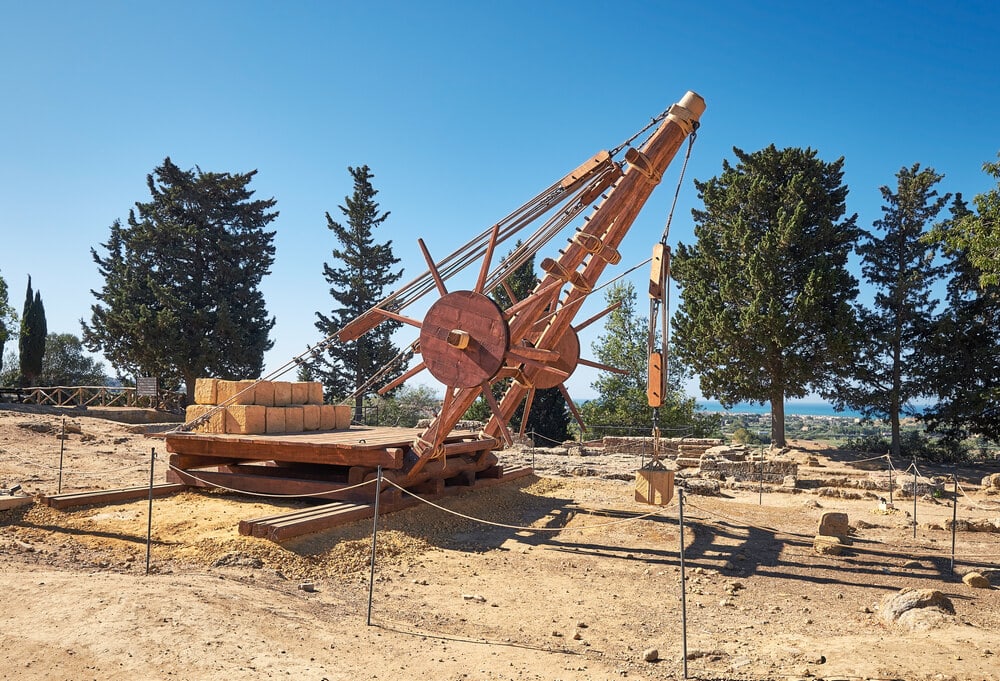
13. The Crane
- Time of Invention: 3,000 to 500 B.C.
Most people feel that the modern concept of the Crane began in Egypt due to all the major construction that happened there. Yet Mesopotamia invented the first one roughly around 3,000 B.C. It was called the Shadouf and was used for water irrigation. The Egyptians adopted this concept about one thousand years later.
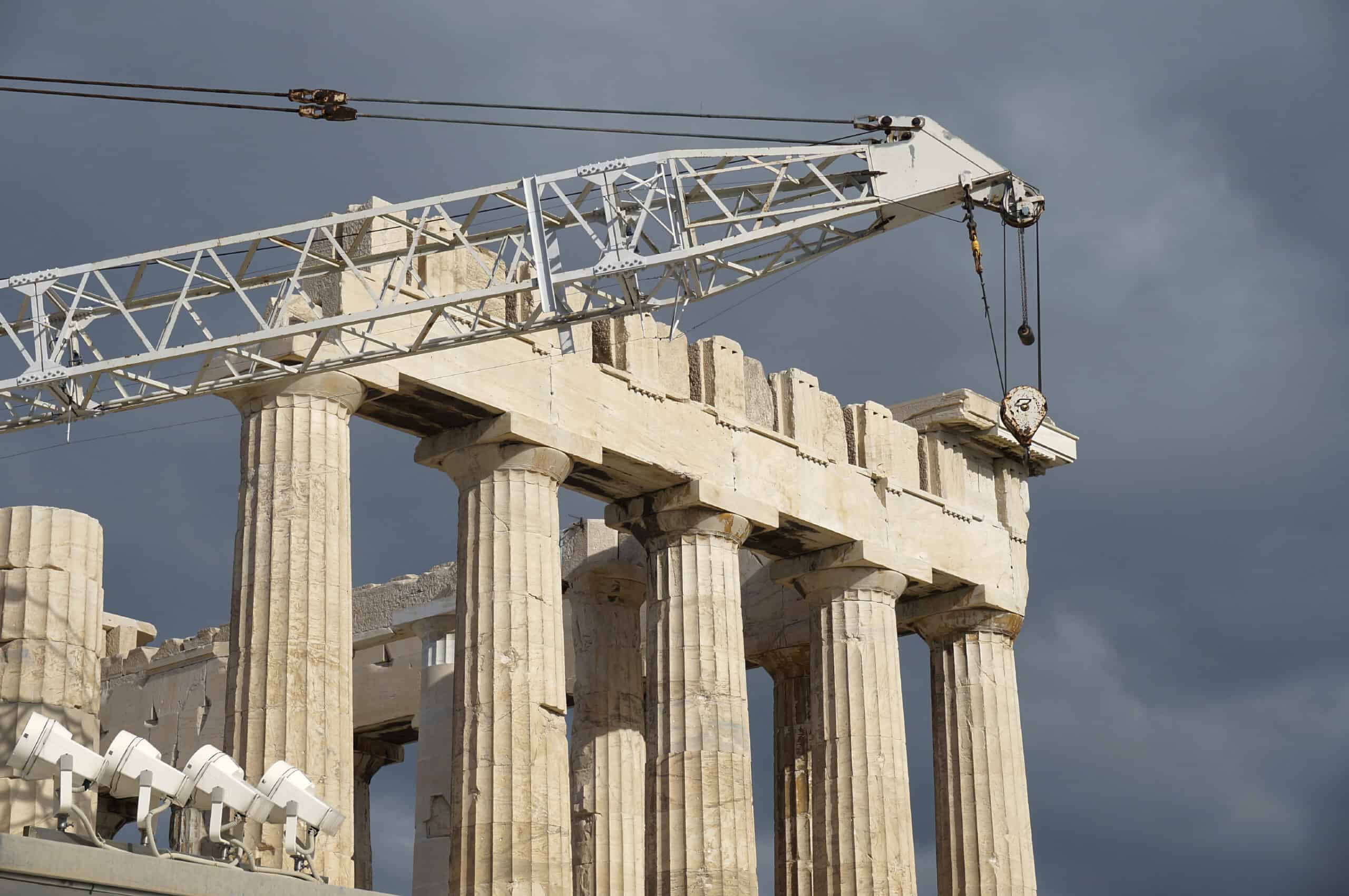
However, it was yet again the Greeks that invented the first crane to help move heavy loads. Archeological studies have found that the crane dates back to the 6th century. This makes many wonder how did this major ancient Greek technology become a staple for Egyptians. It is likely due to the pyramids and other major Egyptian construction. Sadly, they did not have a crane to assist them.
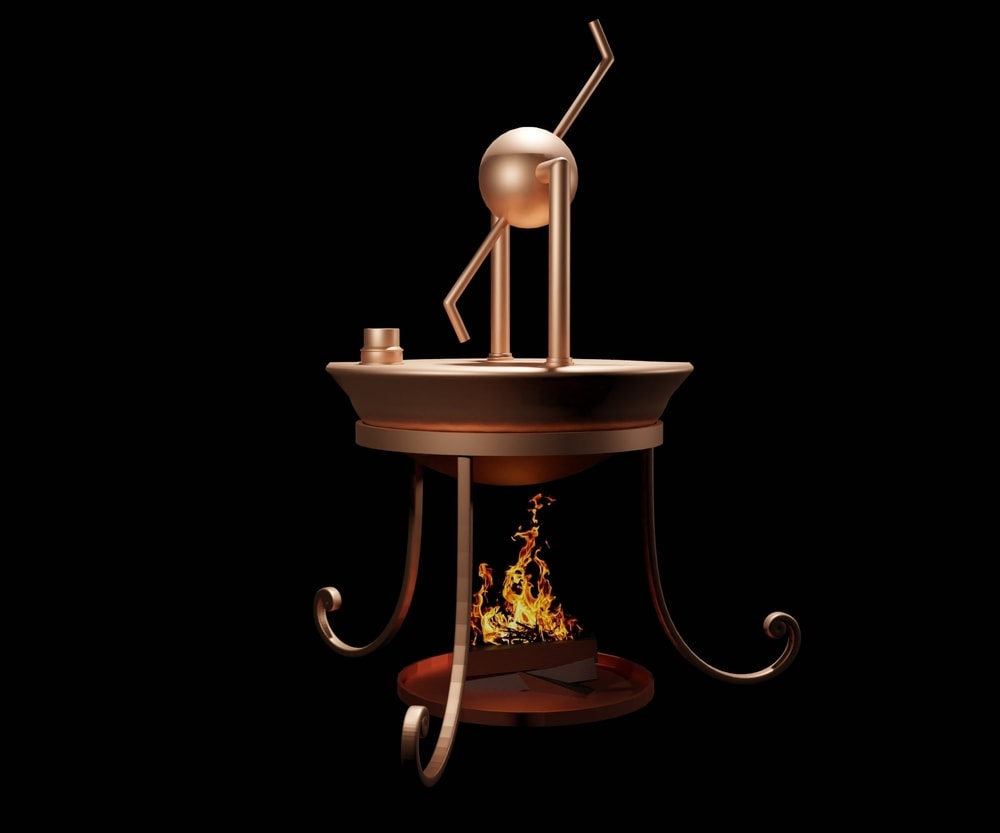
12. Steam Engine
- Time of Invention: 25 A.D. to 65 A.D.
Funny enough, the first steam engine was actually not connected to the locomotive or anything similar. Invented by that useful guy known as Hero of Alexandria, he called his version the Aeolipile. Today, it is mostly known as “Hero’s Engine.”
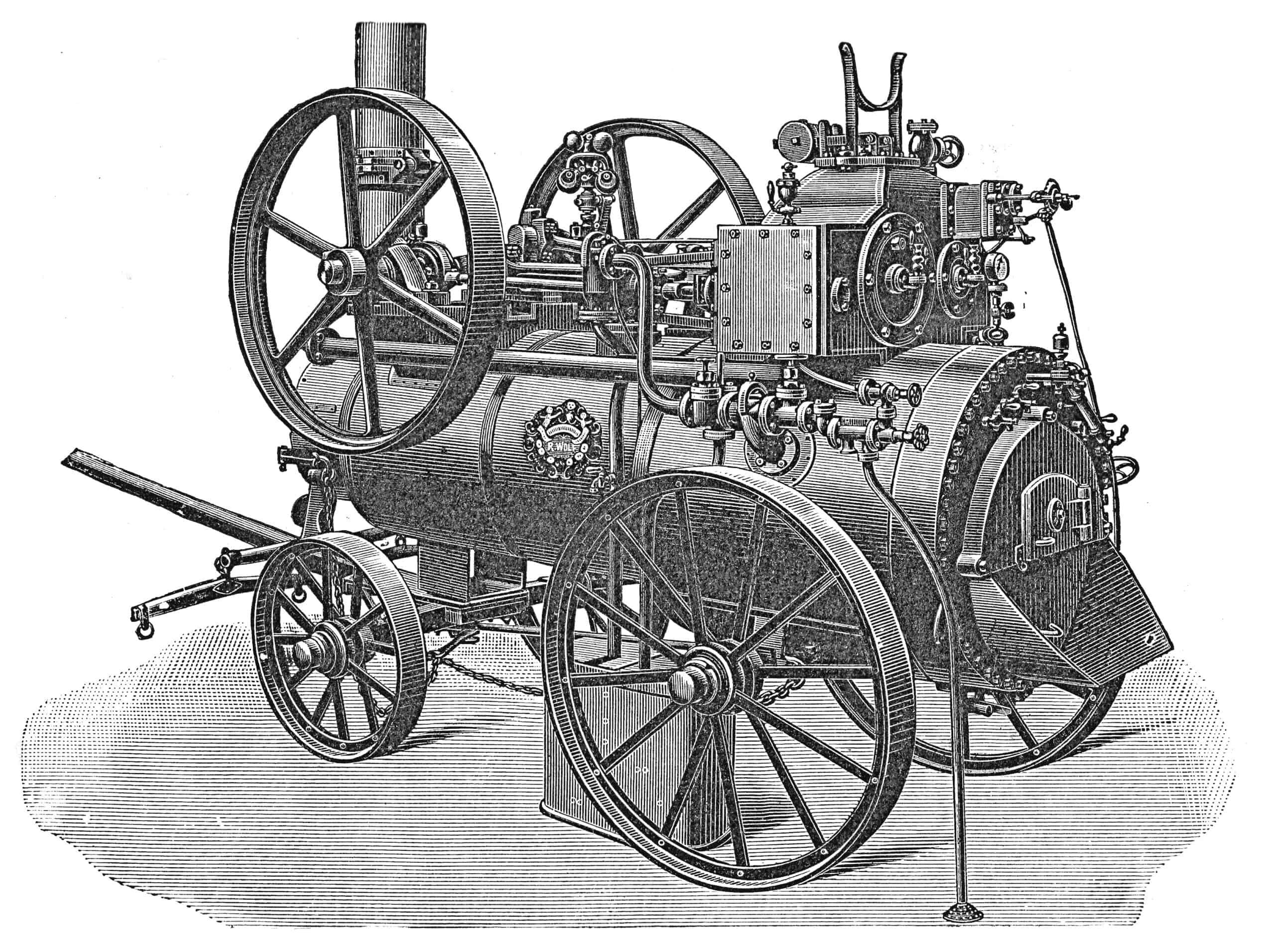
This was a bladeless radial steam turbine that would spin when the central water container managed to heat up. Steam Jets created a form of torque, which then exited the turbine. This is similar to what a rocket engine does. This first steam engine concept would be what others based their steam engine concept on originally. Even the rocket needed to use some of Hero’s concepts.

11. Clock Towers
- Time of Invention: 200 B.C. to 50 A.D.
The original clock tower was actually invented for the Tower of the Winds, which was located in Athens, Greece. It featured an impressive eight sundials outside. Inside the Tower, there was also an early version of the water clock to help track time. It was driven by the water that came down from the Acropolis of Athens.

Of course, this Acropolis was simply a very high point in the area, it was also known for things like the Parthenon. This area also had a waterfall, giving us the ability to see the water clock inside the Tower. In any case, the Tower of the Winds had a lot of firsts. Thus, it should not shock anyone that they were the first to have a clock tower too.
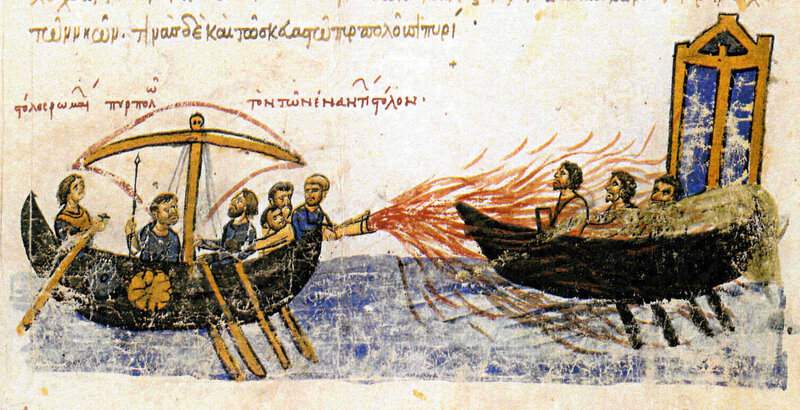
10. Greek Fire
- Time of Invention: 672 A.D.
Greek Fire began obviously in Greece. We know, you’re shocked! It was made from Sulfur, Petroleum, and a Bitumen-based mixture. Of course, fire overall had been used in weapon form for centuries before Greek Fire was invented. What really made Greek Fire stand out was how impressively it spread and that it was much harder to put out.

The stuff even floated on the water, making it nearly impossible to put in any traditional form. It was often used to burn down ships as a result. Water ignited earlier versions of Greek Fire. This is why many believe it had things like naphtha and quicklime in it. This was used for the first time when Greeks invaded Constantinople and was a major fixture for the Byzantine Empire in several military ventures.

9. Flamethrower
- Time of Invention: 431 B.C. to 690 A.D.
Greek Fire had a huge influence and it became a staple in Greek militaries for years to come. However, there was a need to use it even more effectively. This was when the flamethrower came into play in a major way. However, it’s believed that the first known use of a flamethrower occurred during the Peloponnesian War. This was a Greek war fought among the Athenians and Spartans.
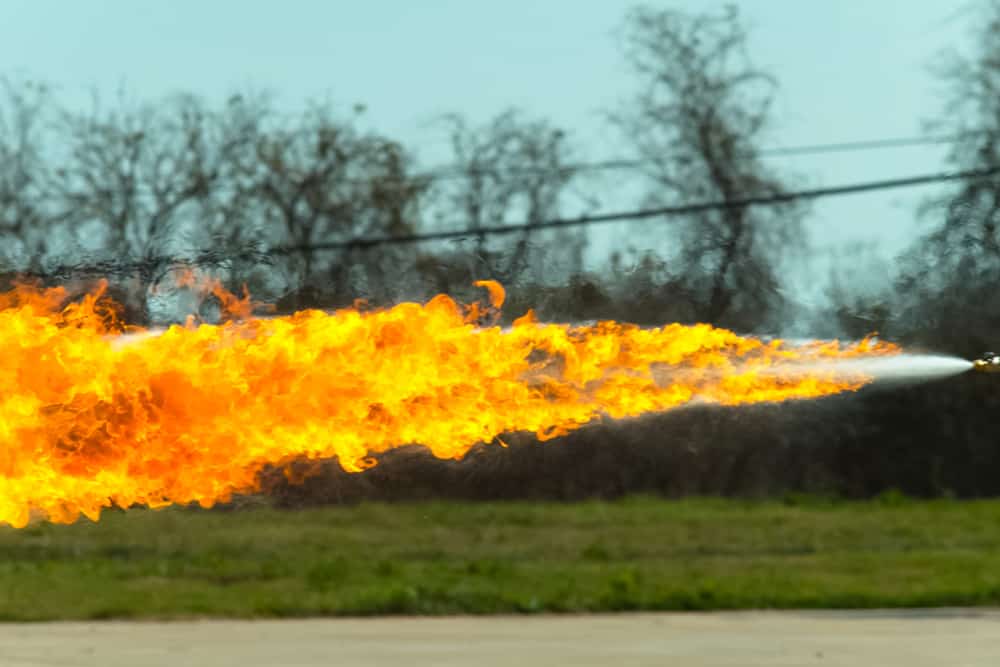
It was used to destroy walls built by the Athenians during the Battle of Delium. Later on, the Byzantine Empire used the flamethrower we modern versions are based on. They sprayed Greek Fire on ships using one made from a siphon-hose and piston. Simply by using a match, they could light the liquid Greek Fire as it was ejected from the device. They mostly used it during naval battles.
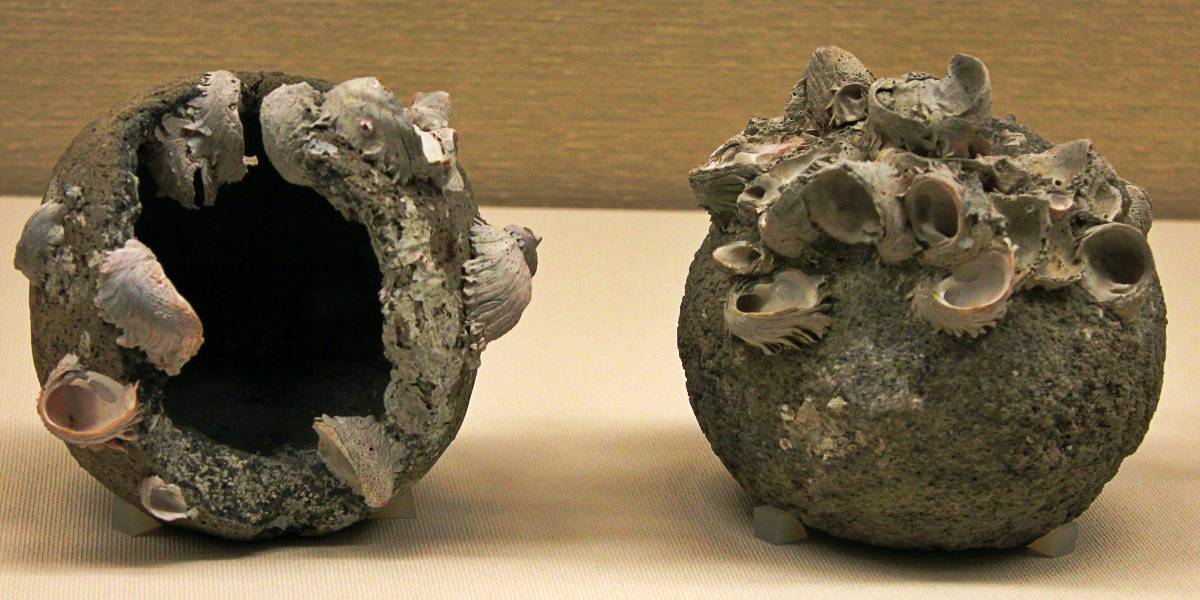
8. Grenades
- Time of Invention: 717 to 741 A.D.
Yet again, Greek Fire makes itself known as a huge asset. Early versions of the grenade used Greek Fire that the Byzantine Empire was famous for. The very same empire would invent the early grenade during the reign of Leo III. Byzantine soldiers realized that Greek Fire could easily be added into various areas, including the flamethrower. All you needed to do was simply light it as it came out.
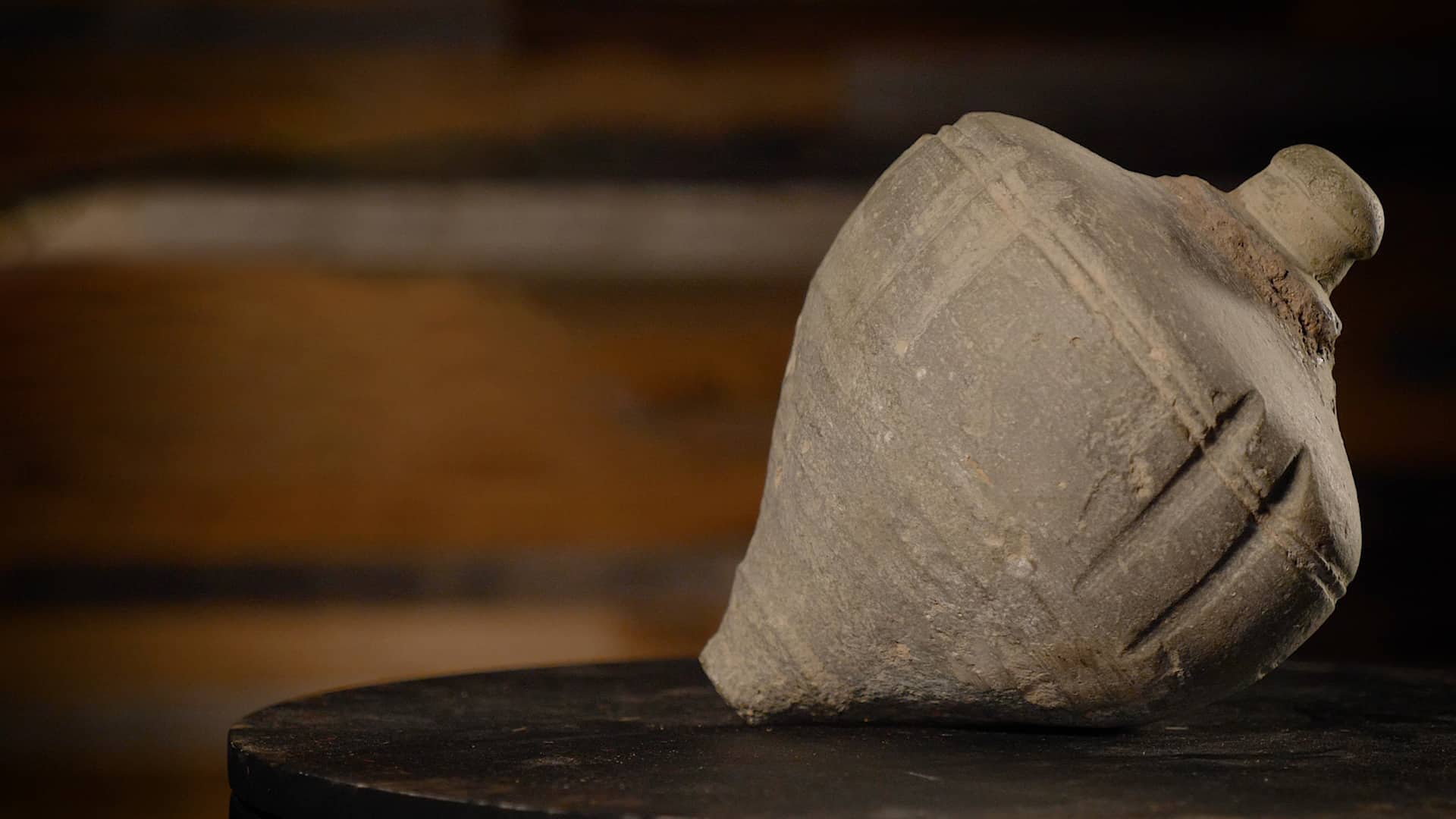
Stone and Ceramic were free of any fire problems, so soldiers could easily carry Greek Fire in these before lighting it. This gave them the idea that they could light and then throw a stone and/or ceramic jar at people or objects. As they broke, the now lite liquid would burst out everywhere and burn down buildings or burn people alive. Glass was then used later on to do the same thing.
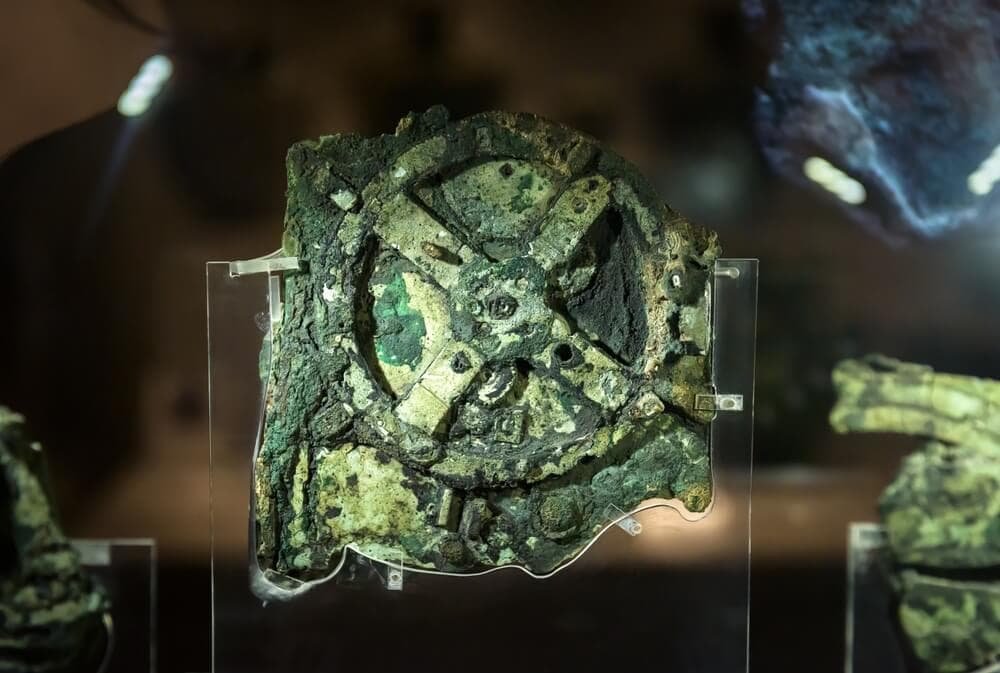
7. Computers
- Time of Invention: 323 to 60 B.C.
While the Greeks did not invent computers the way we know them today, they did technically invent the first analog computer. One of the biggest unsung inventions from ancient Greek technology is the Antikythera mechanism. This was used to predict astrological events, such as eclipses. It was useful in helping form calendars too.
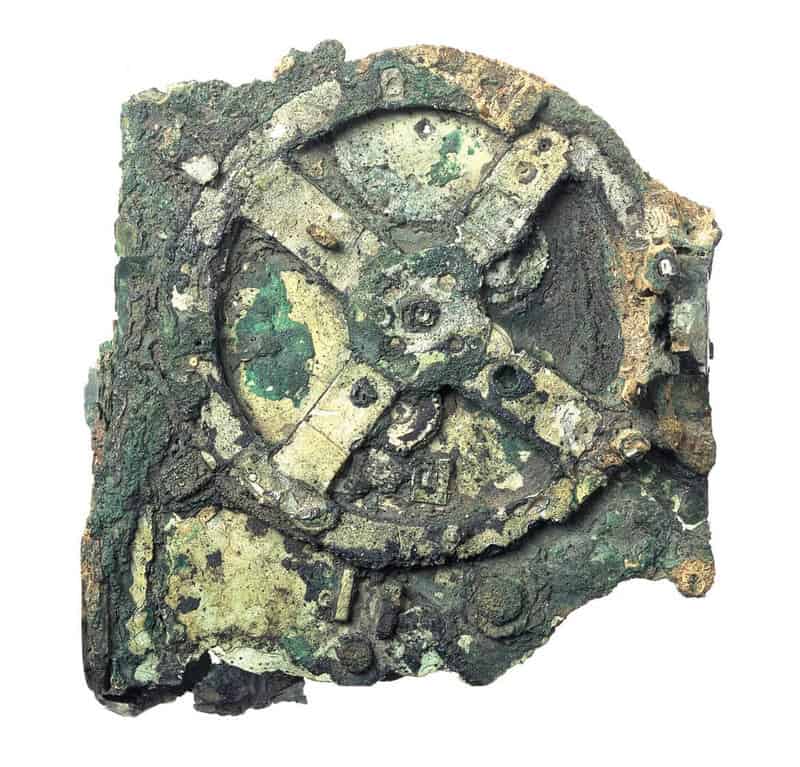
The mechanism was especially useful in helping to keep track of years, which was very useful for the original Olympic Games called the Olympiad. It could track the 4-year cycle properly, without fail. This allowed Greeks to know exactly when, by the day, that certain events took place. Since the Antikythera mechanism did not fail to operate, it worked as surely as the computer too.
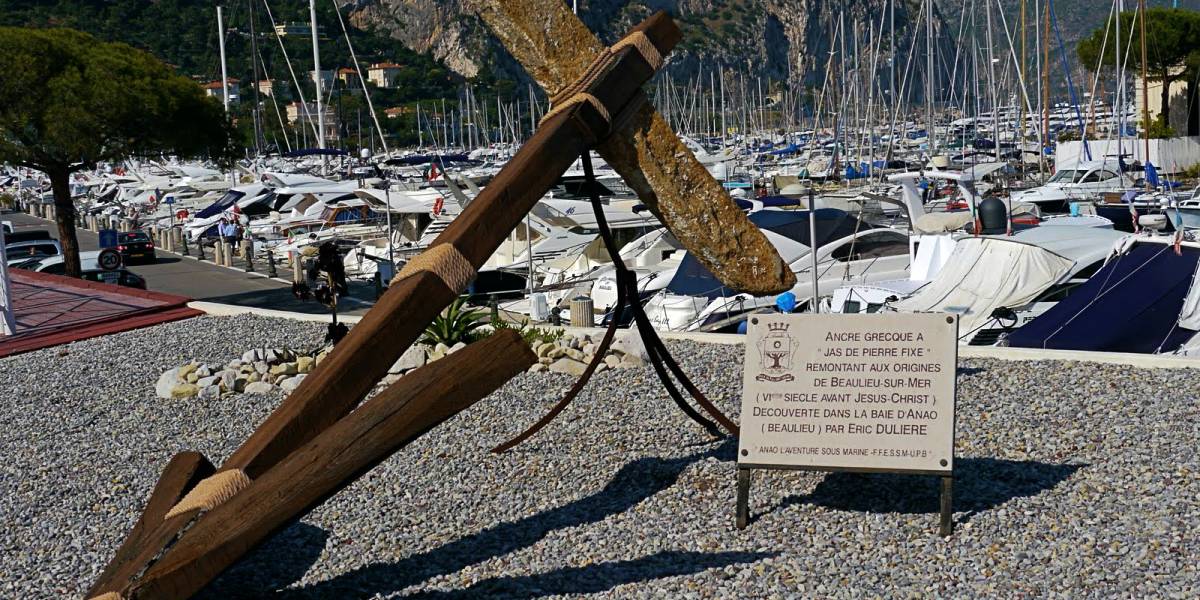
6. Anchors
- Time of Invention: 500 to 400 B.C.
After primitive anchors were used in preventing small boats from moving when not in use, eventually true anchors were made. These were, to the shock of no one, ancient Greek technology.

The earliest that the Greeks invented was made of baskets filled with stone, large sacks filled with sand, and even wooden logs filled with things like lead of the time. Some Athenian places simply used wood or anchors that could simply hold the sea vessel by its weight, along with certain anchors that used friction along the bottom.

5. Opiates & Anesthesia
- Time of Invention: 3500 to 2500 B.C.
It’s actually quite funny that the Greeks invented two forms of the same thing, both connected to opiates. Both were often used to help people during surgical procedures or to help as a sedative. This worked similarly to modern anesthesia. The first form of this was that a person might be knocked out by some ancient Greek technology made specifically for this.

Due to those issues, people eventually began using the opium plant. Opium was misunderstood for hundreds of years and led to the creation of things we see today like morphine, heroin, and fentanyl. It seems that the first use of the plant for healing, sleep, or any medical purpose happened in Ancient Mesopotamia. Once they were discovered to help, ancient people used them for multiple purposes. However, the most common use was as a sedative for more than a few thousand years.
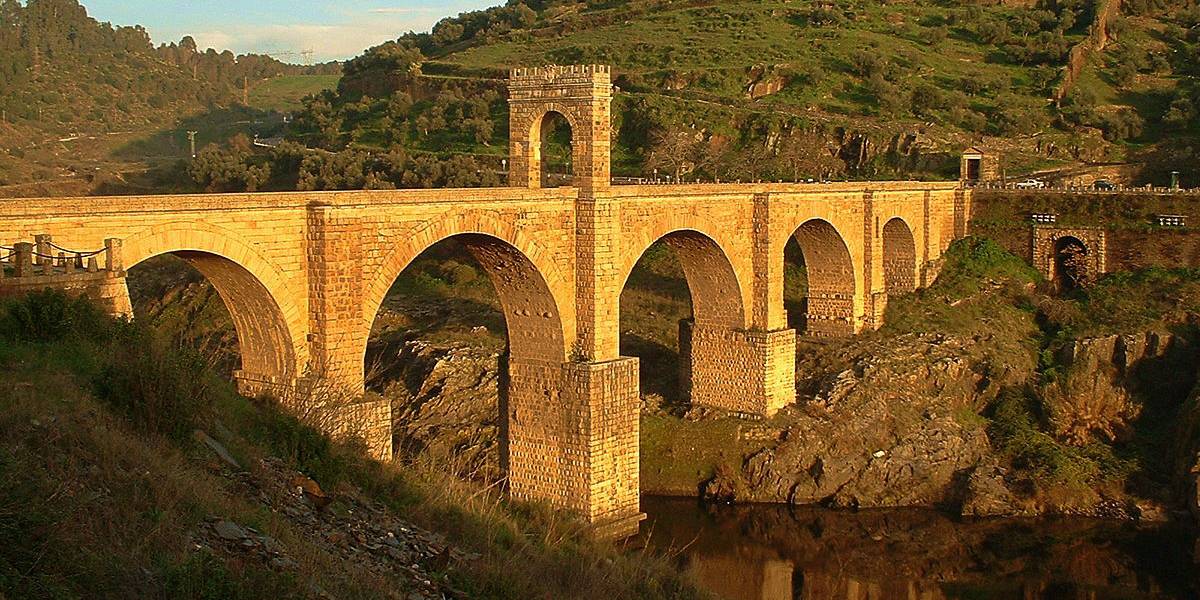
4. Arch Bridge
- Time of Invention: 2000 to 1300 B.C.
That’s right, the classic arch bridge is an ancient Greek technology invented centuries ago. A lot of people give credit to the later Romans for this, but they weren’t the first. There are two bridges that still stand today called the Mycenaean Arkadiko Bridge that dates back to 1300 B.C. & the Rhodes Footbridge from the 4th Century B.C. Both are in Greece and used by locals even today.

Romans did not invent their first bridges until the 1st Century A.D. which proves the Arch Bridge came into play well before the Greco-Roman Era. It is likely that other Arch Bridges were in Greece hundreds of years before the two mentioned above. However, they very well could have been destroyed. This is why many date back the Arch Bridge even to the second millennium B.C.

3. Trusses & Truss Roofing
- Time of Invention: 3000 to 2000 B.C.
The Truss Roof is often where most ancient buildings get their roofing concepts. This is also a staple in things like barns to this day across the world. A truss is merely the assembly of beams or other element types that can create a rigid structure. Engineers describe it as something that consists of two-force members where both are organized so that the assembled parts behave like one.

Most of the major temples such as the Temples of Hera & Heracles use this concept. The rest use another roof type that Greeks invented, the Prop-and-Lintel. The Romans exclusively used the Truss Roof concept in their temples later on. These were commonplace because simply put, they worked. Trusses are brilliant forms of ancient Greek technology, which are still used in buildings worldwide today.

2. The Lighthouse
- Time of Invention: 280 to 247 B.C.
A lighthouse is used as a way to tell ships they are getting close to land. This was invented due to ships crashing into shores during foggy or night periods. In either form, a light can be seen from far off distances and it will act as a warning sign to help them avoid things like this. Possibly the most prominent lighthouse in ancient times was the version in the city of Alexandria.

This was built during the Ptolemaic Kingdom period during the reign of Ptolemy II Philadelphus. He was the son of Ptolemy I Soter, a former Greek General who served under Alexander the Great until his passing. This ancient Greek technology was the tallest structure in the world and remained such for centuries. It stood until three earthquakes eventually destroyed it from 956 to 1323 A.D.
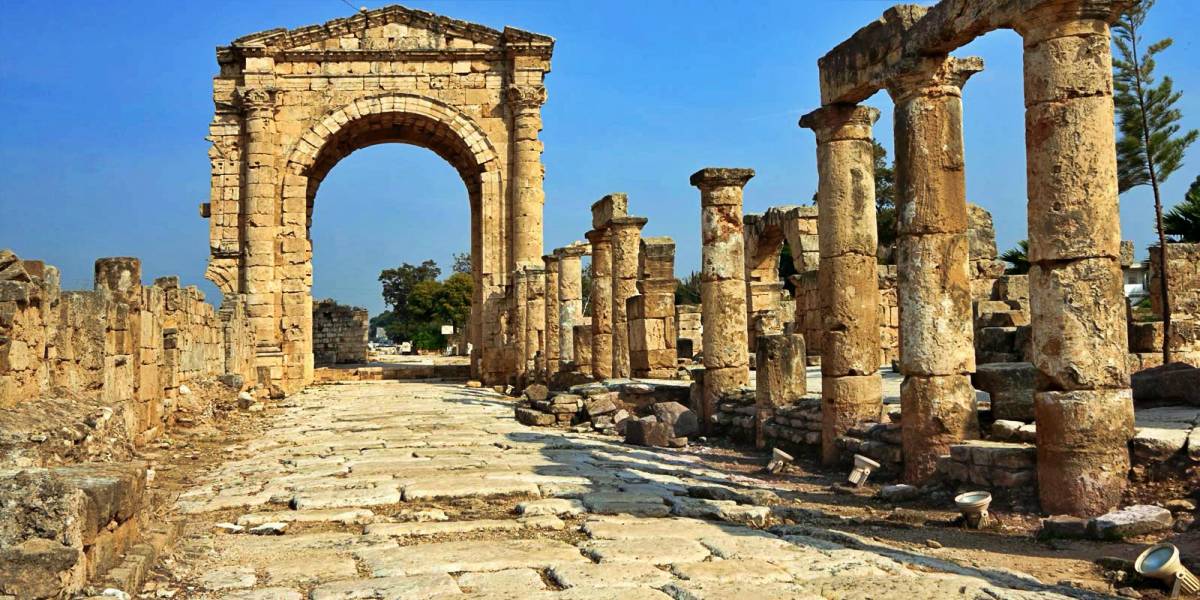
1. Streets
- Time of Invention: 500 to 400 B.C.
Streets were originally invented by the Greeks and act very much like ancient Greek technology. They were formed to assist the Greeks in moving their army. Roads of any kind were pretty much nonexistent, so having some system of opening paths that could move people and equipment easier was common sense. That led to the Greeks pursuing the project.

This was so successful for the Greeks that they felt it could also work for their towns or cities. The original streets for the Greek Armed Forces are said to have been made in the fourth or fifth century B.C. Yet the use of streets in cities would not come until later in the fourth or third century B.C. period. The Porta Rosa is the first major street known and it dates back to that exact time period.

